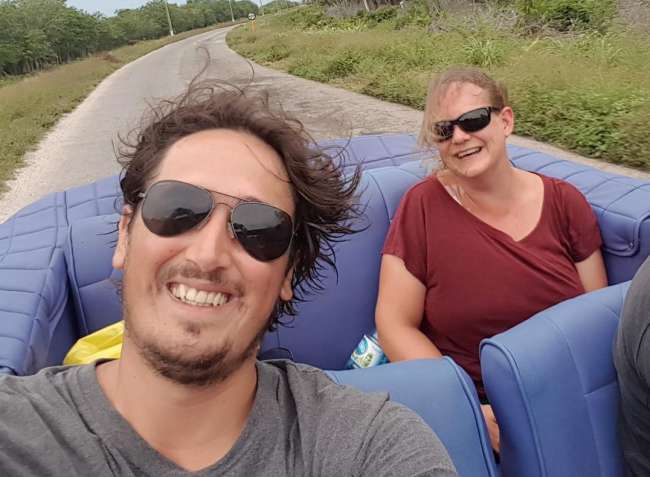Guatemala: Holy Week (Antigua Part 2 & Pacaya)
Published: 13.04.2018
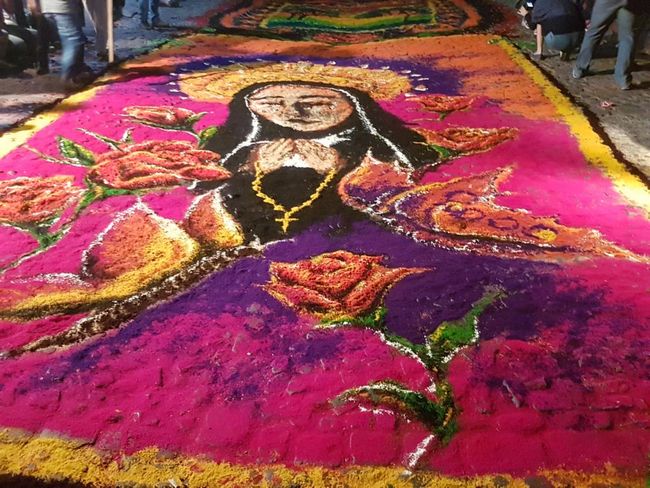
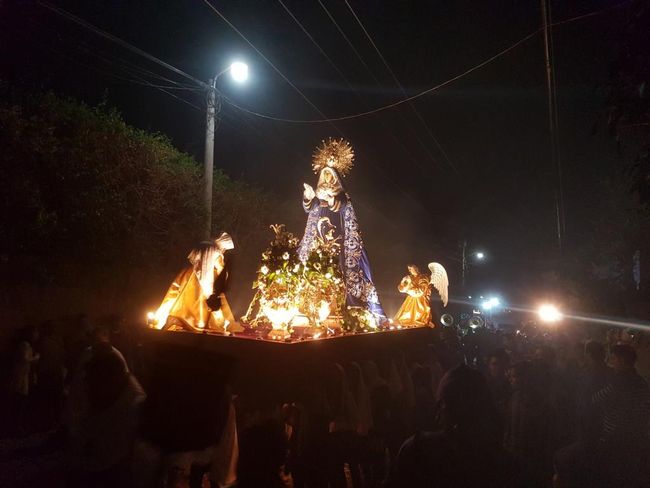
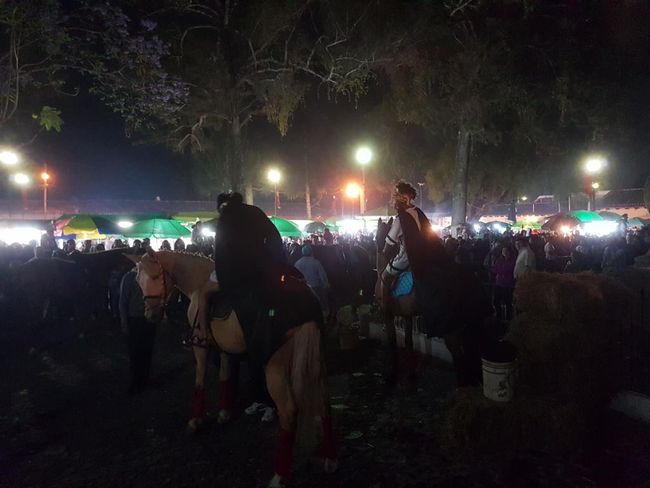
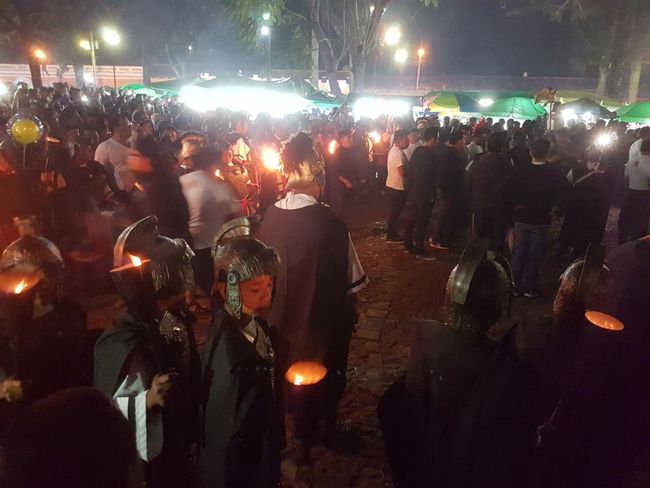
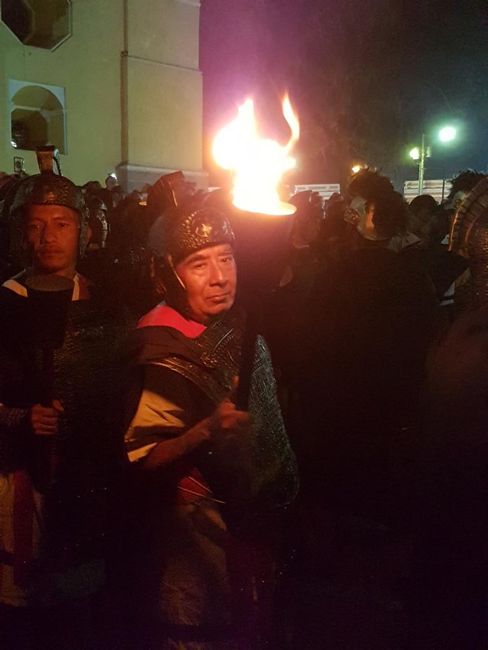
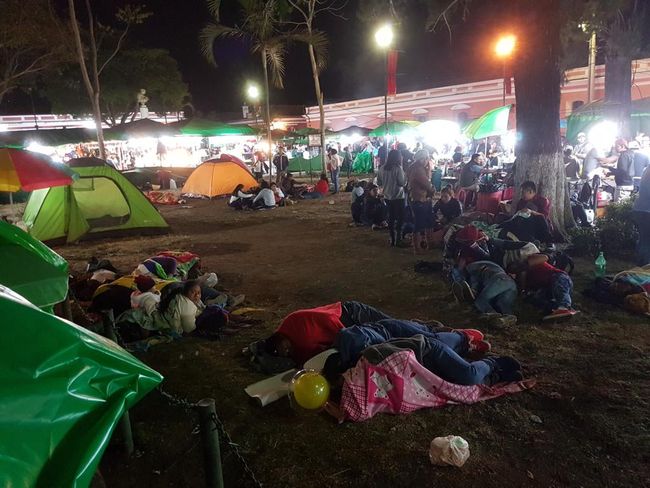
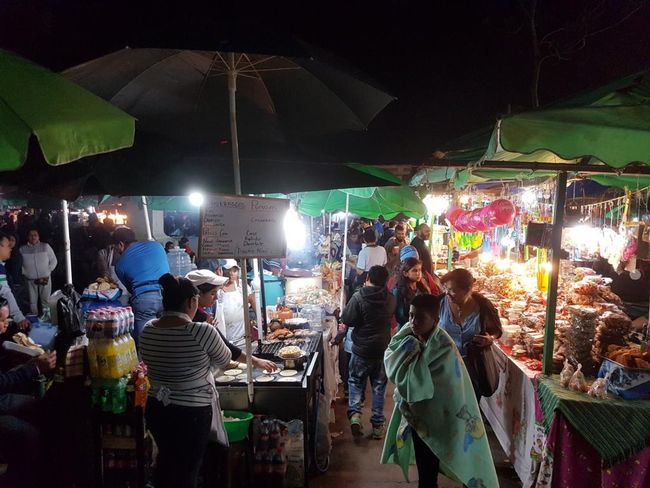
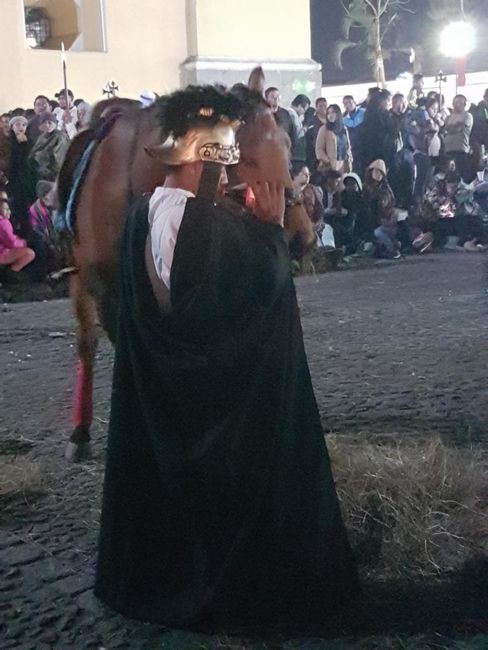
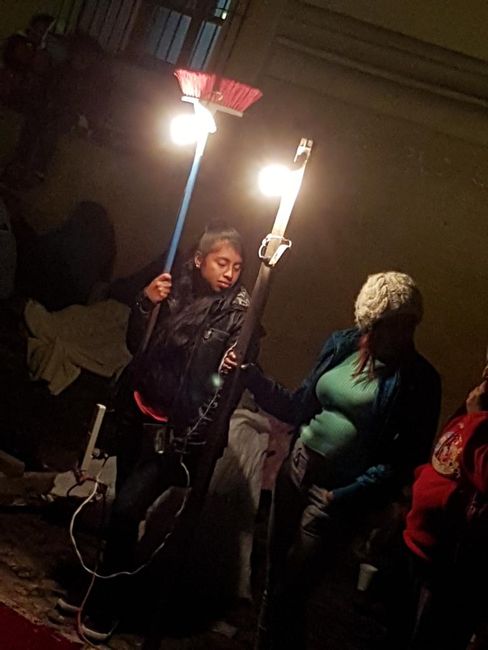
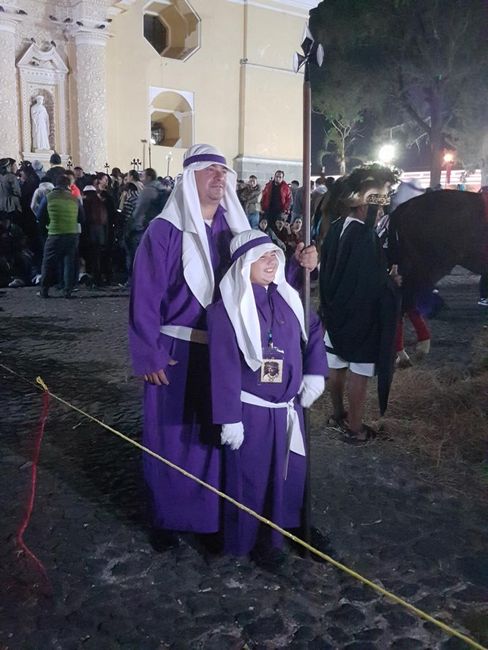
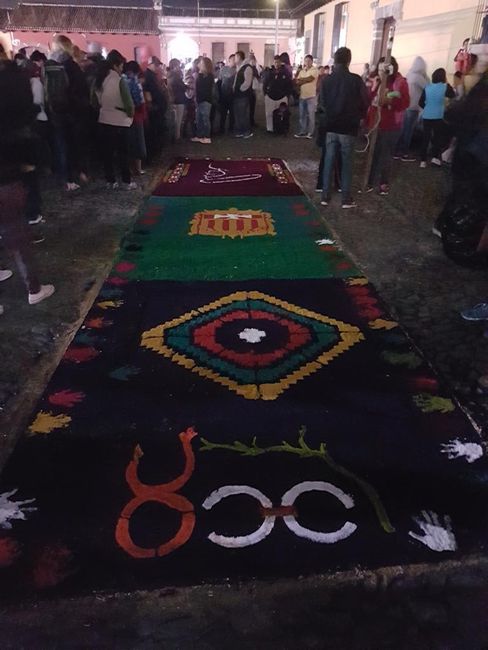
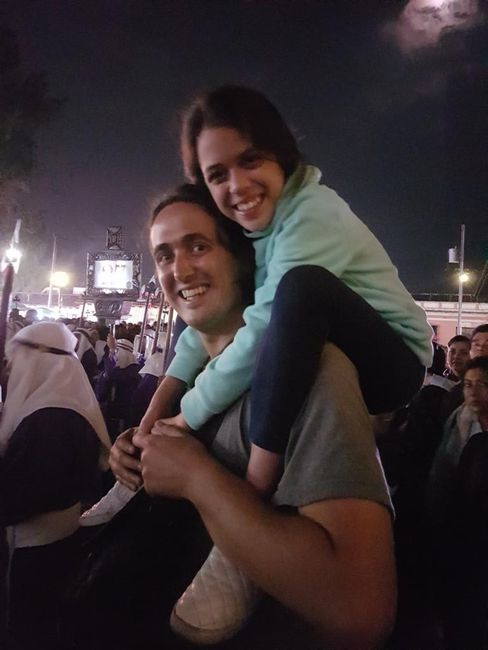
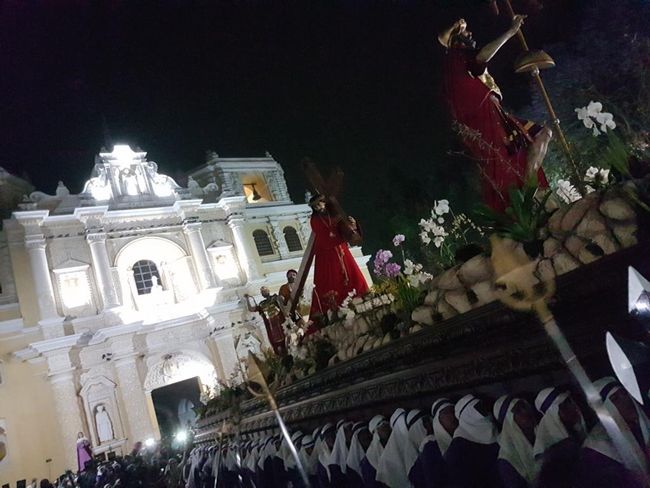
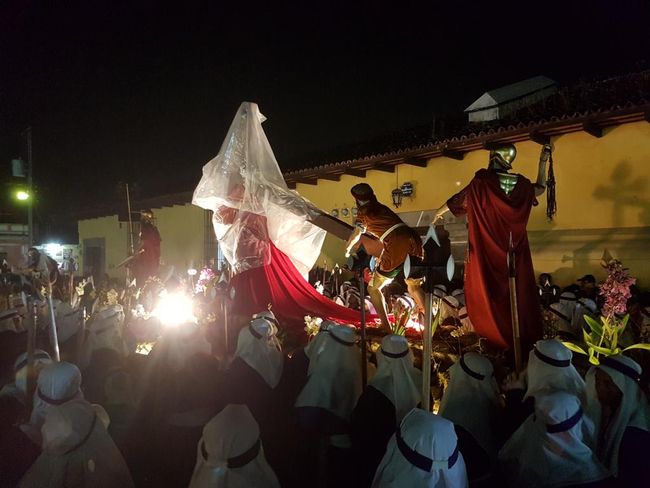
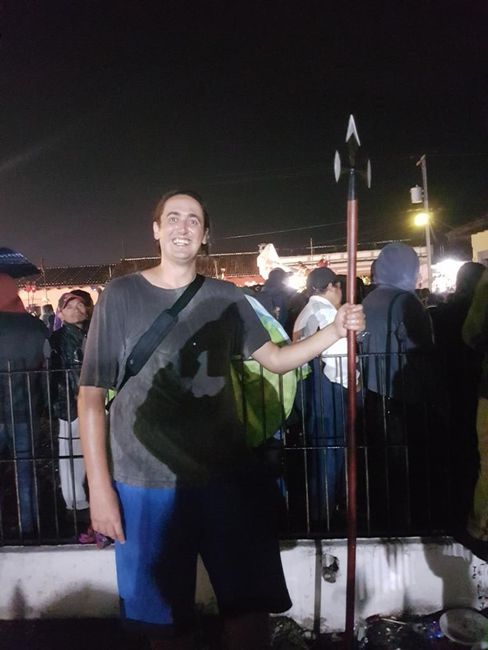
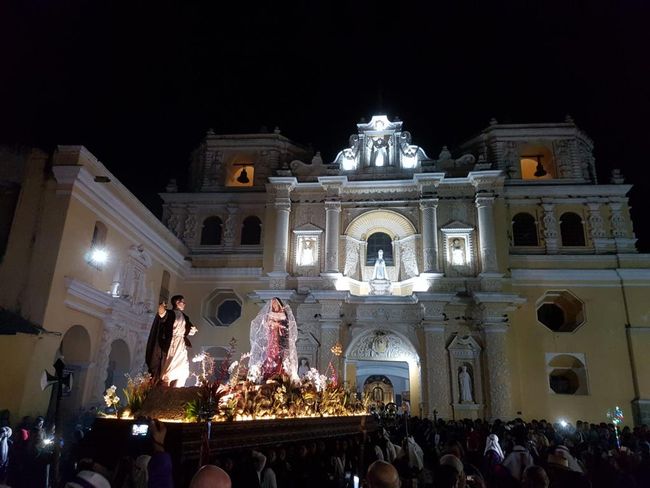
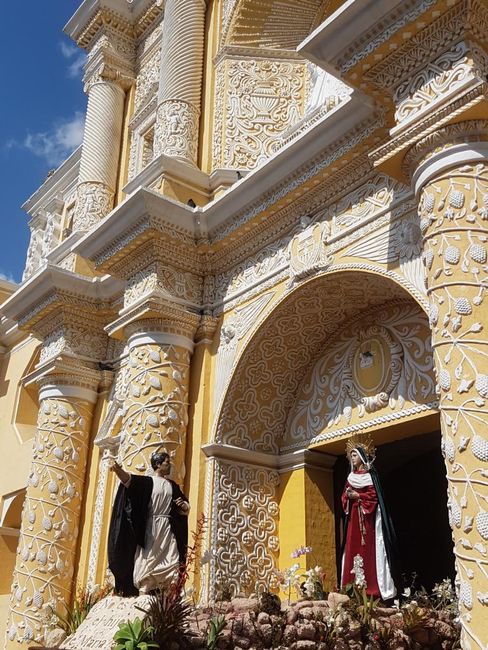
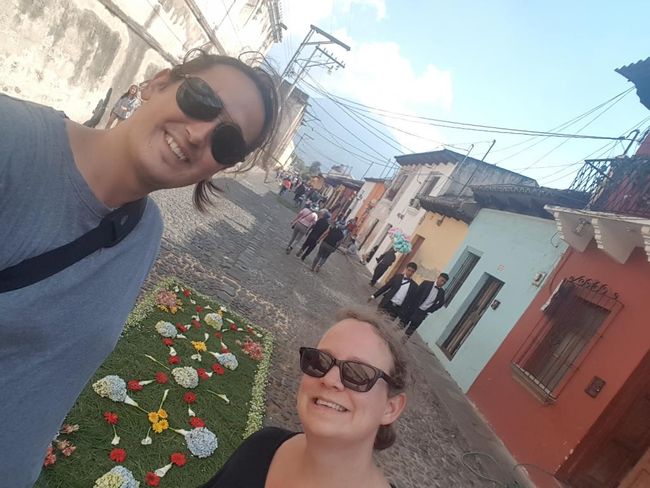
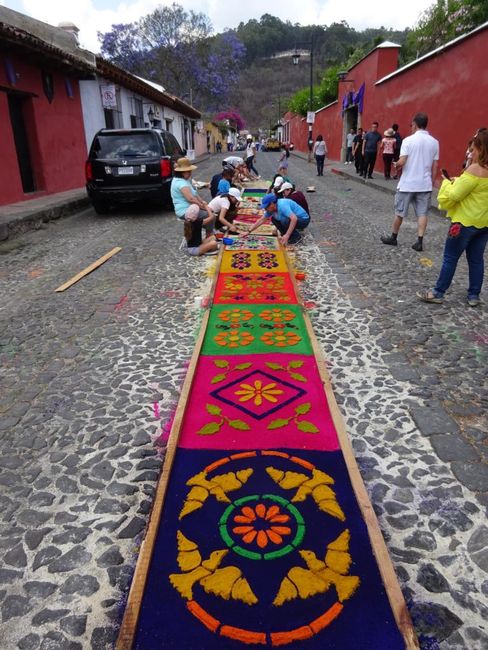
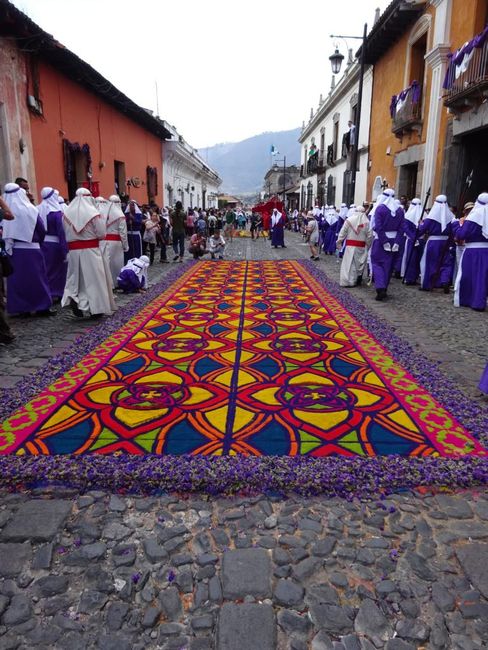
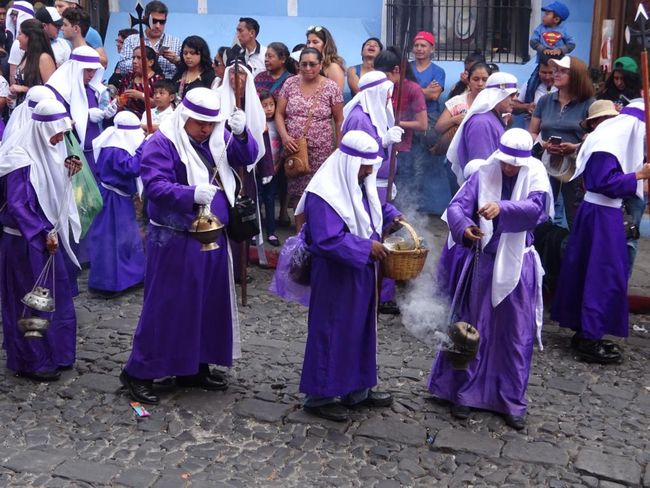
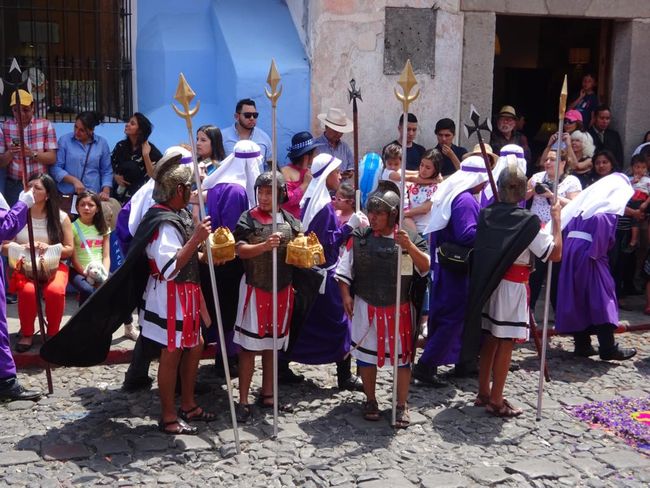
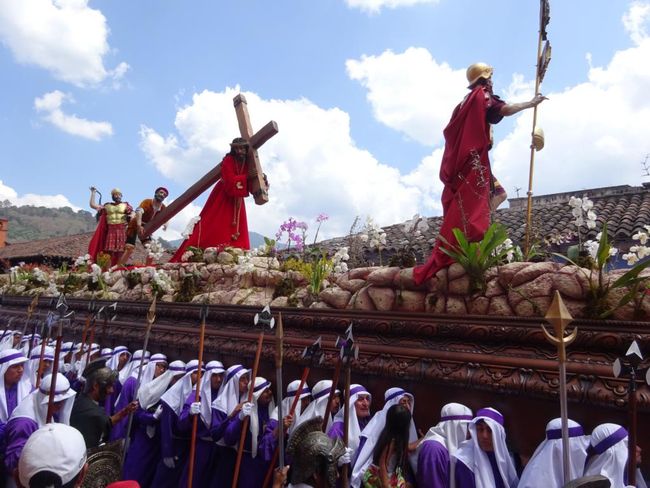
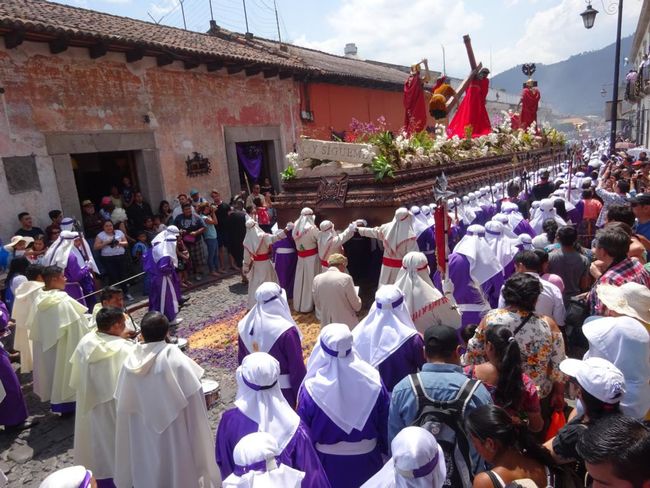
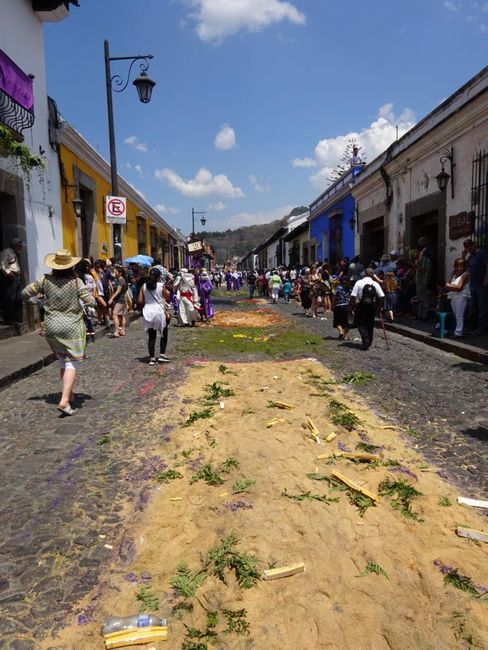
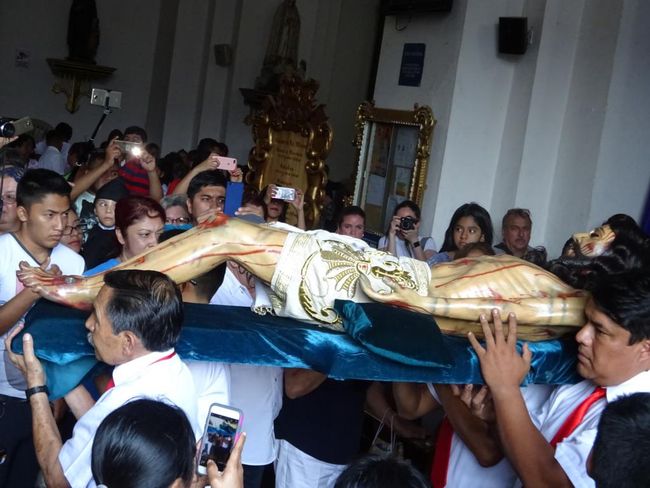
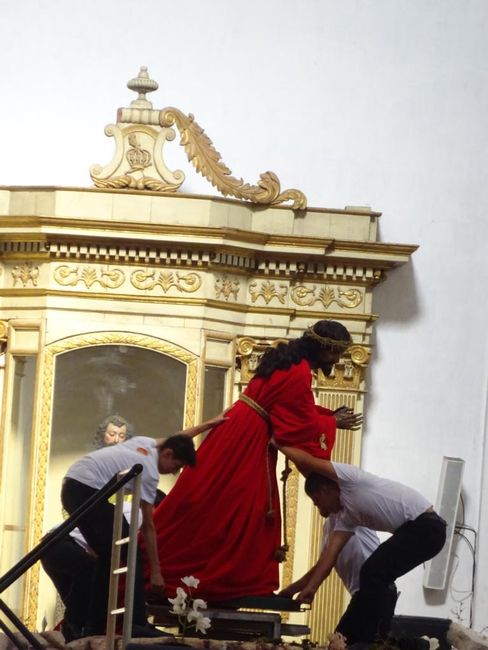
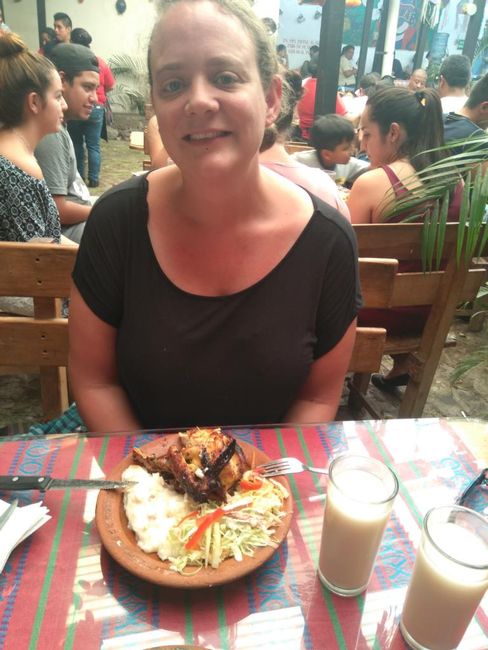
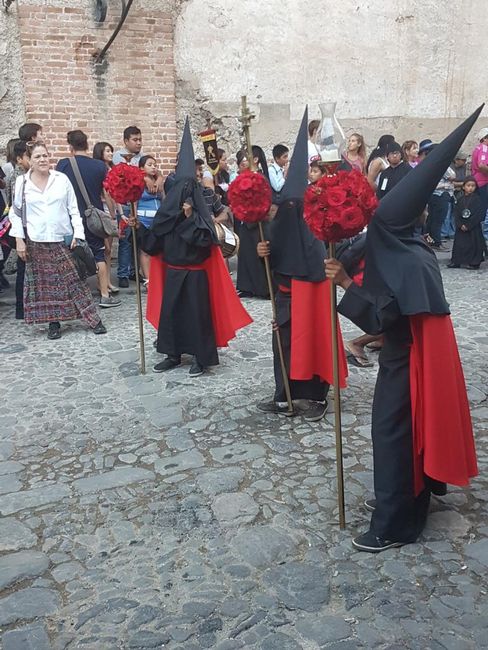
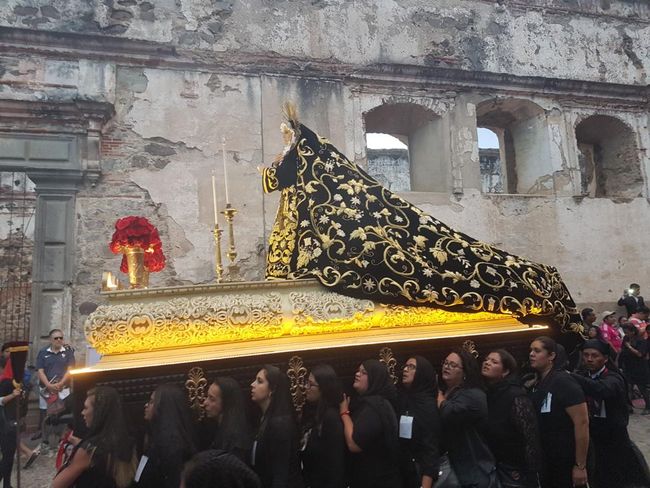
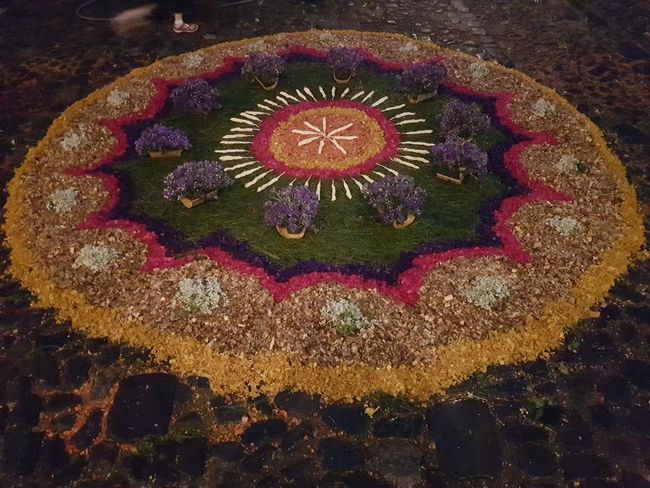
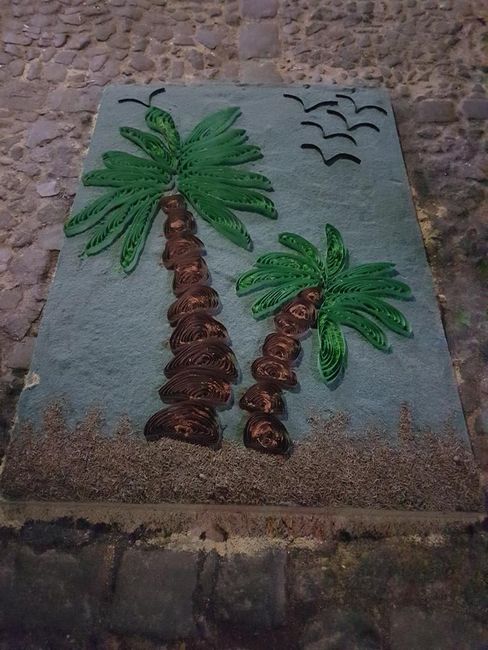
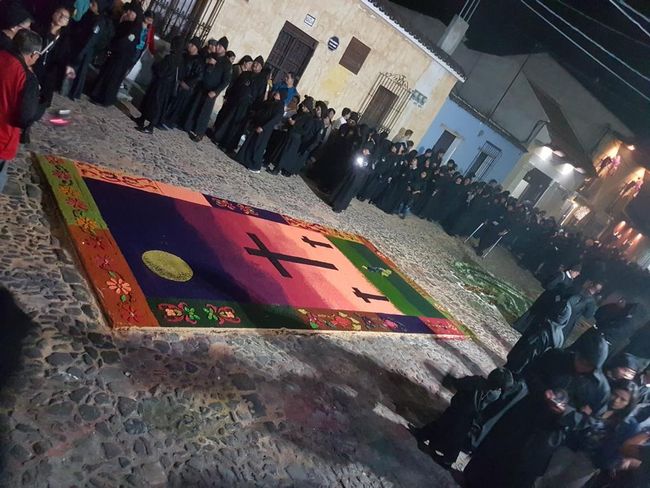
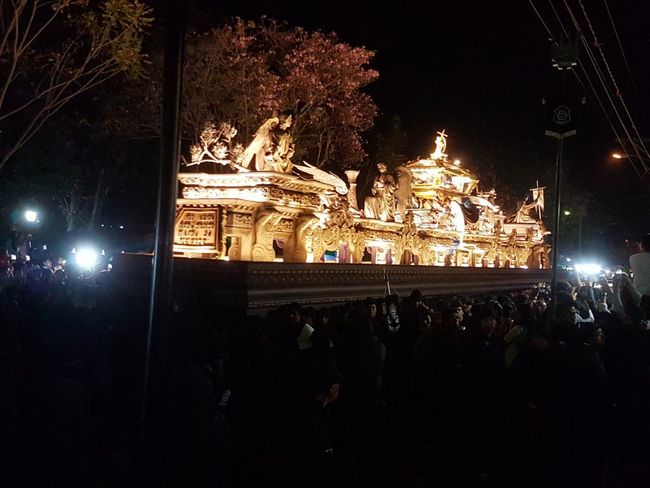
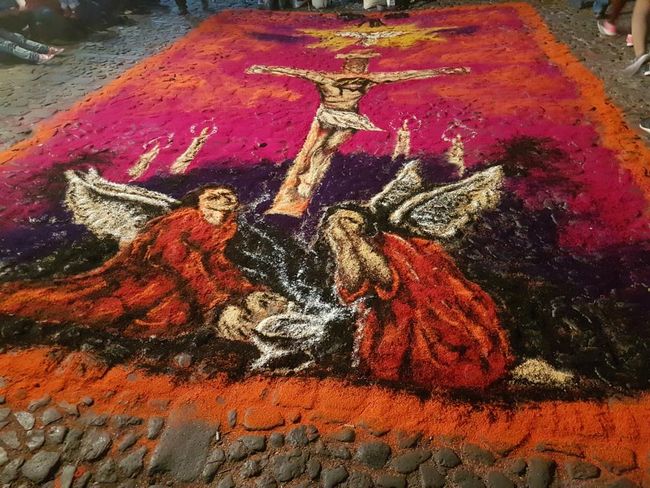
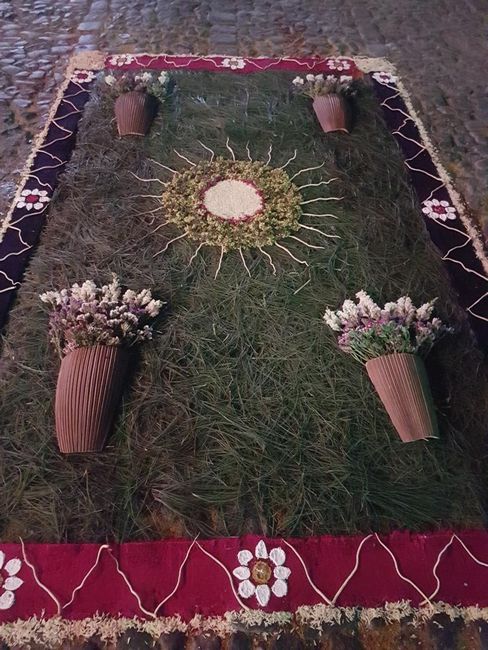
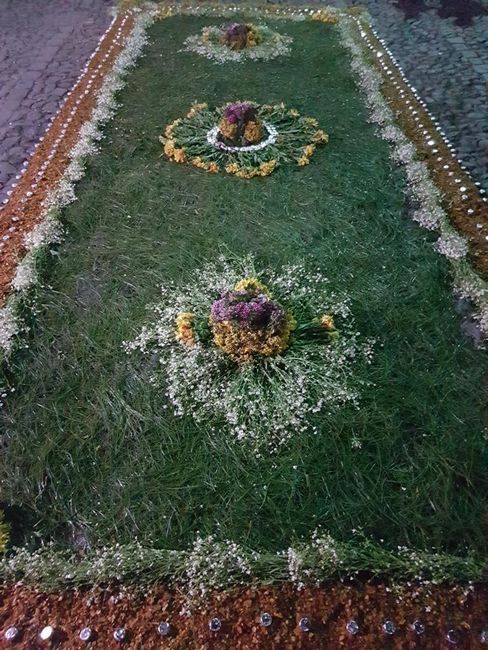
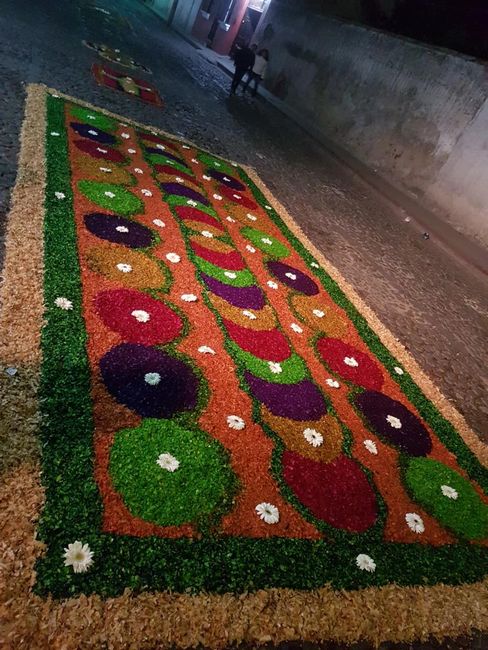
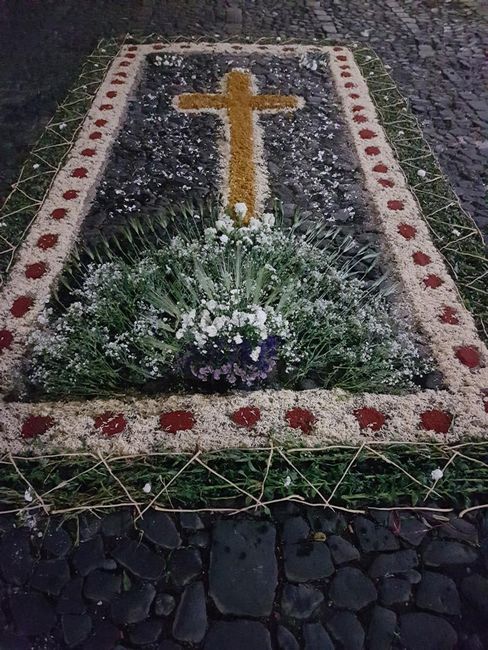
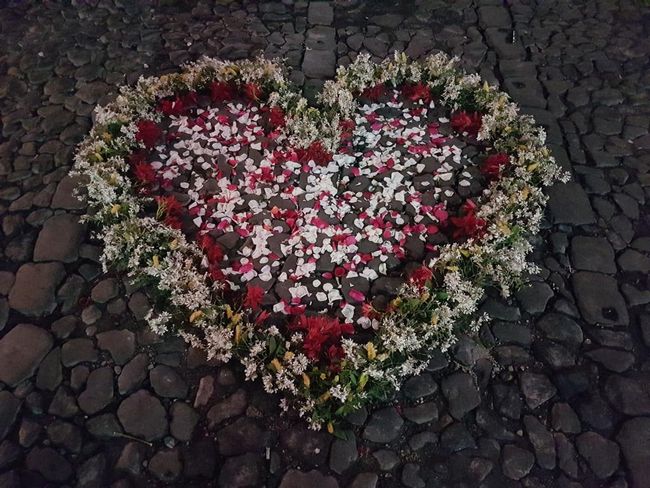
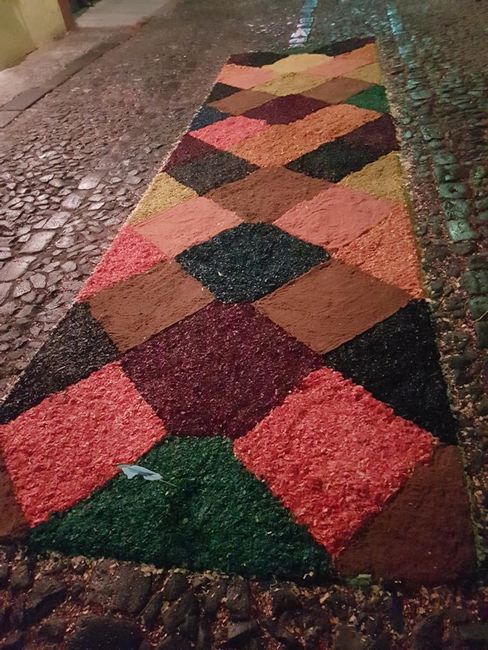
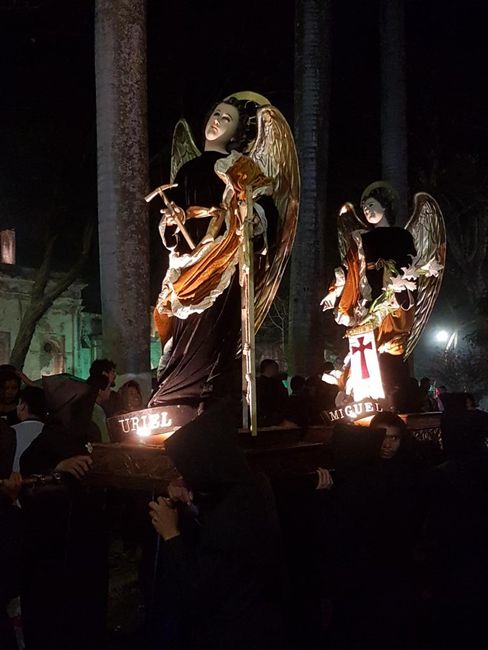
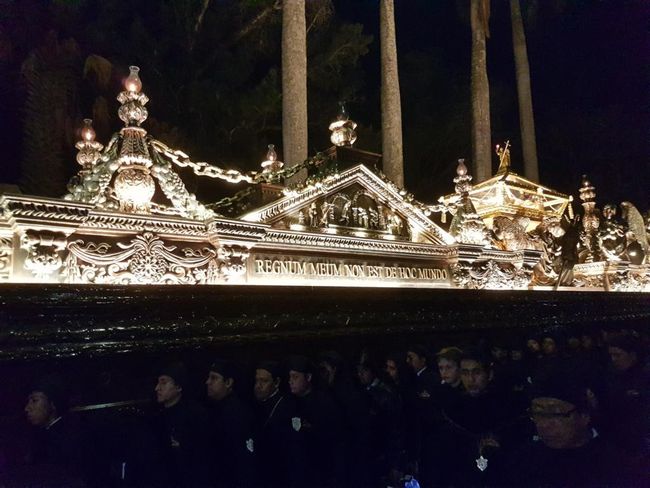
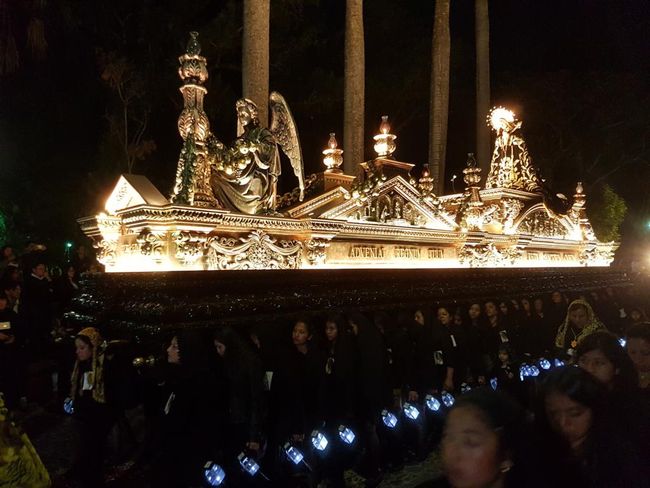
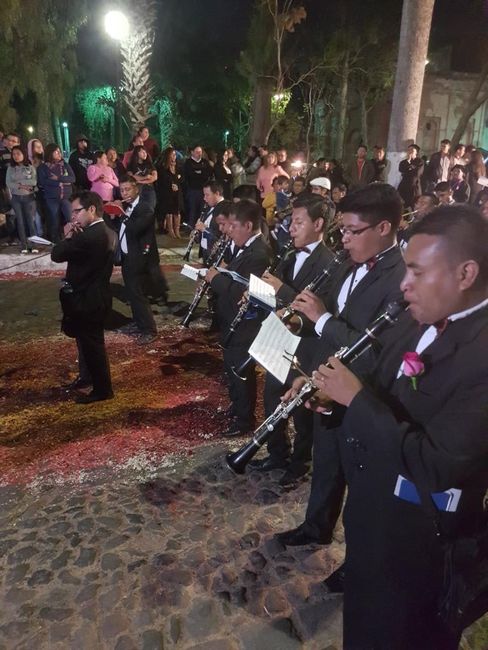
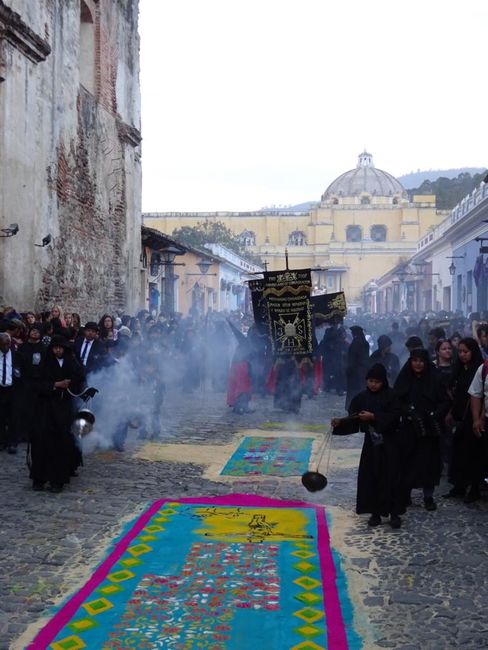
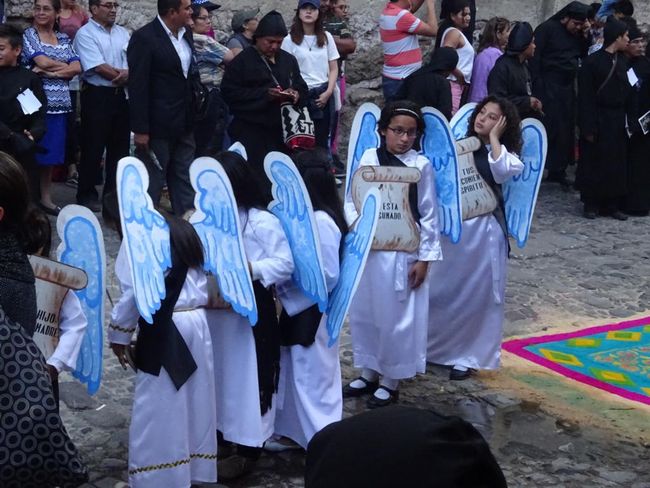
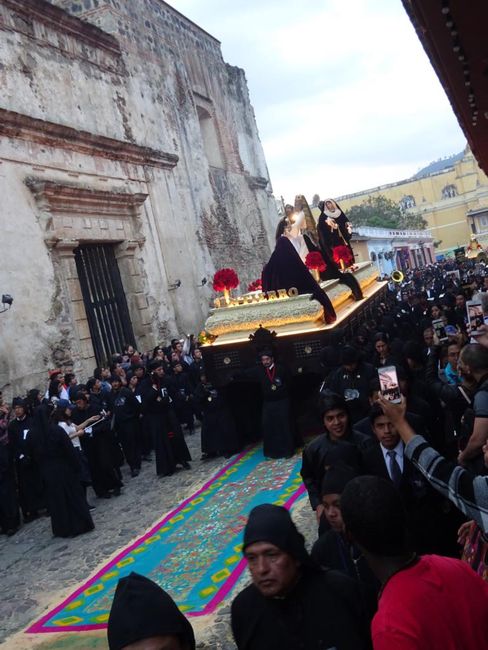
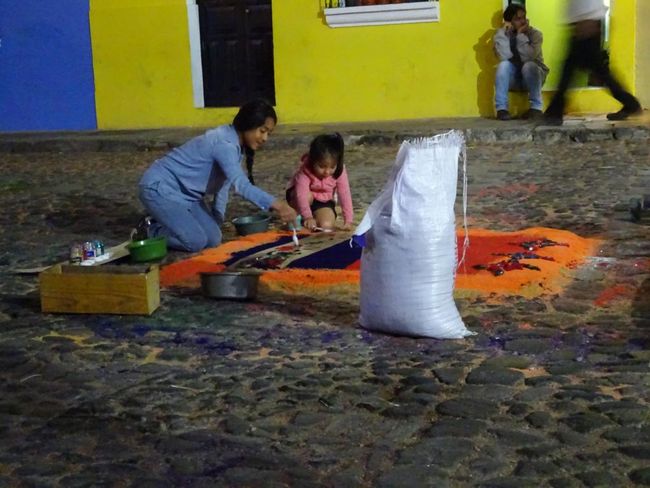
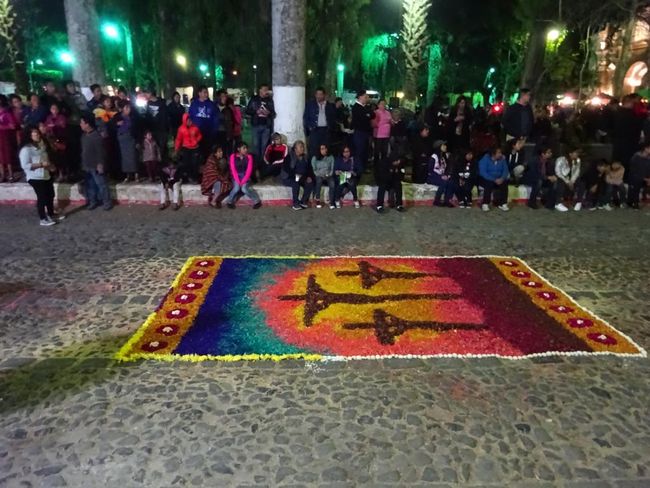
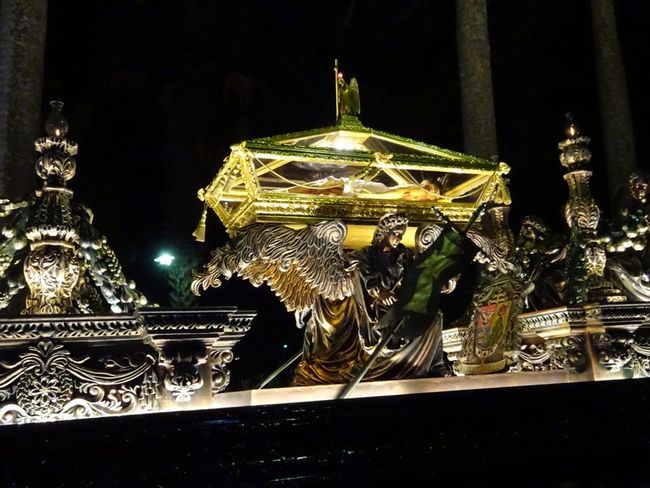
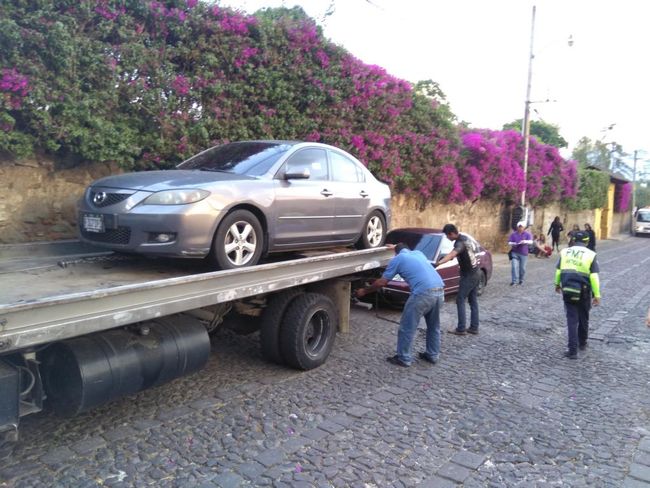
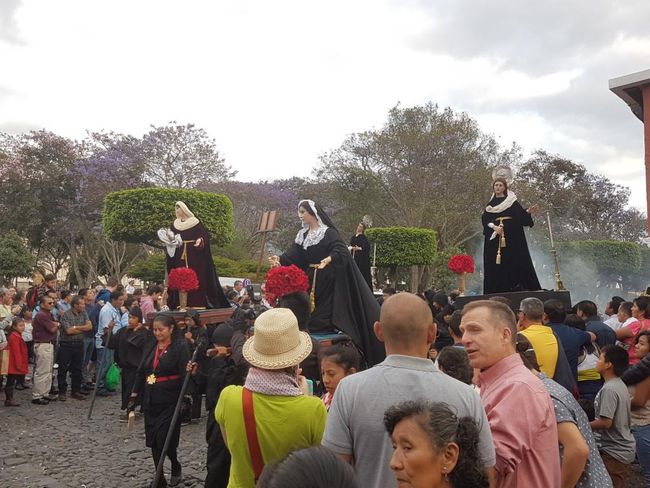
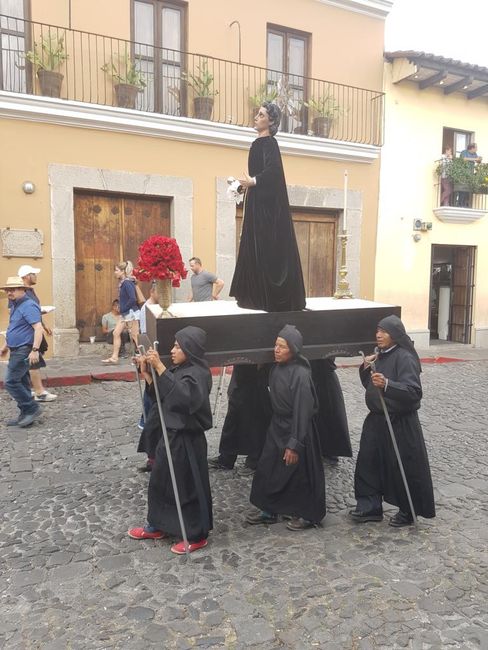
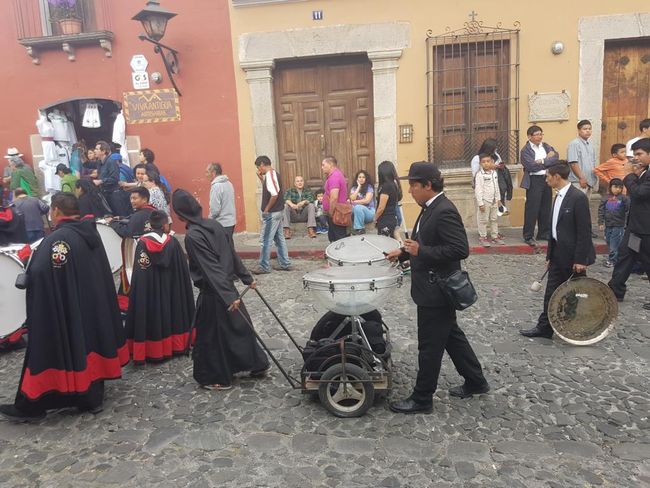
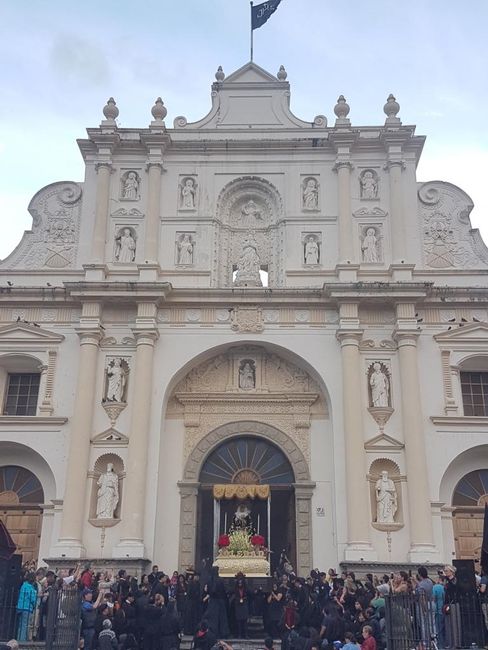
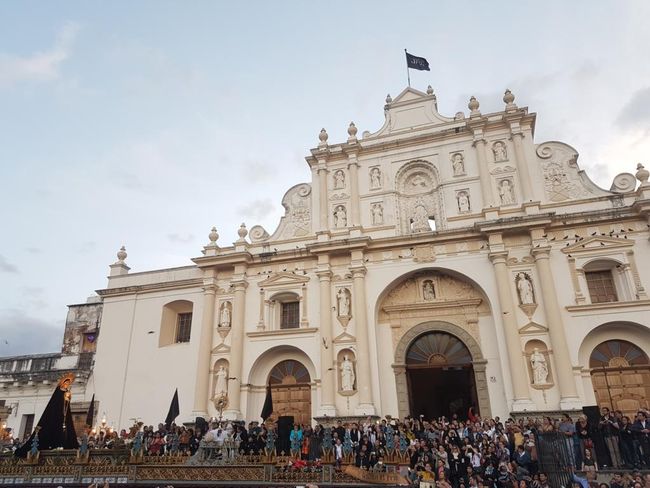
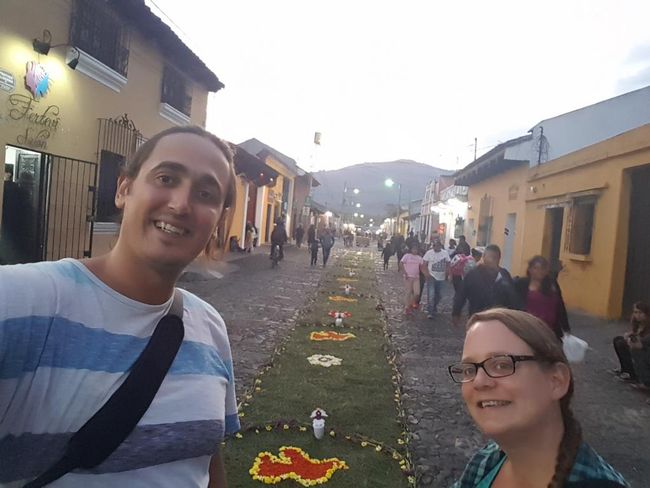
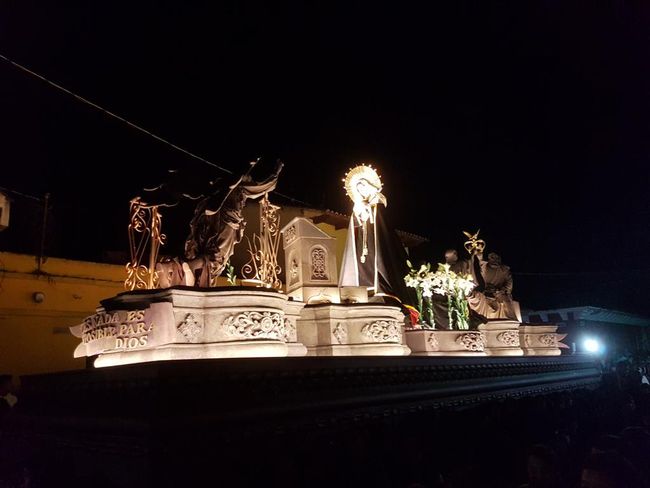
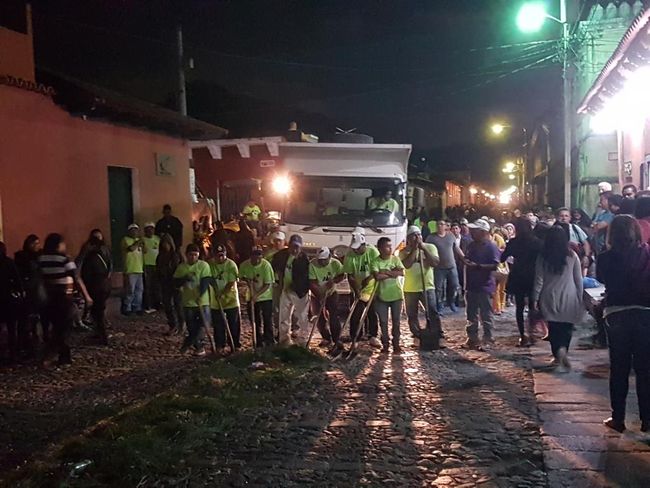
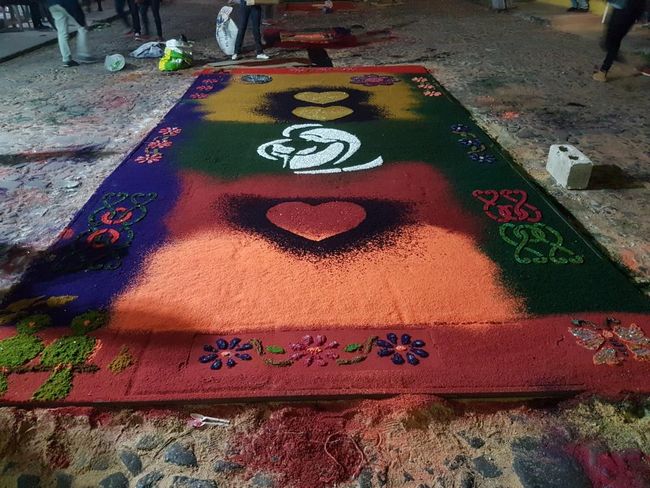
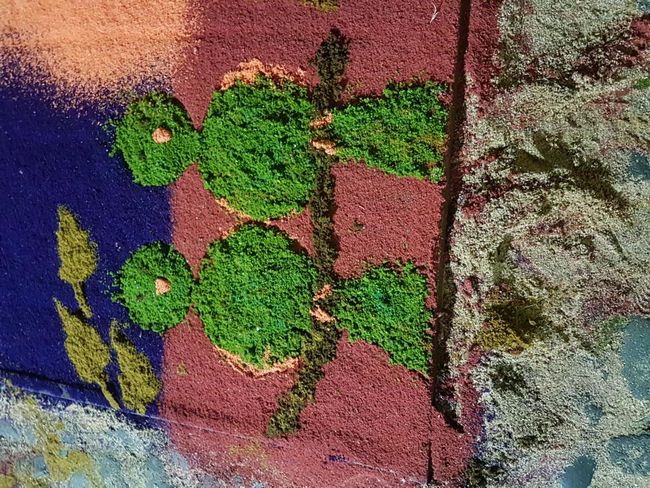
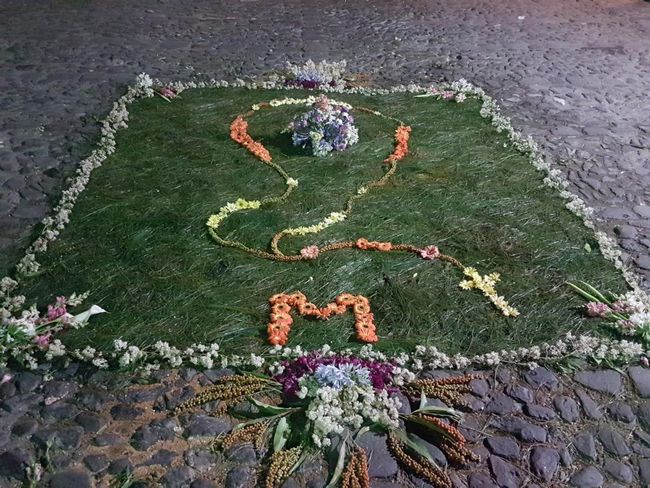
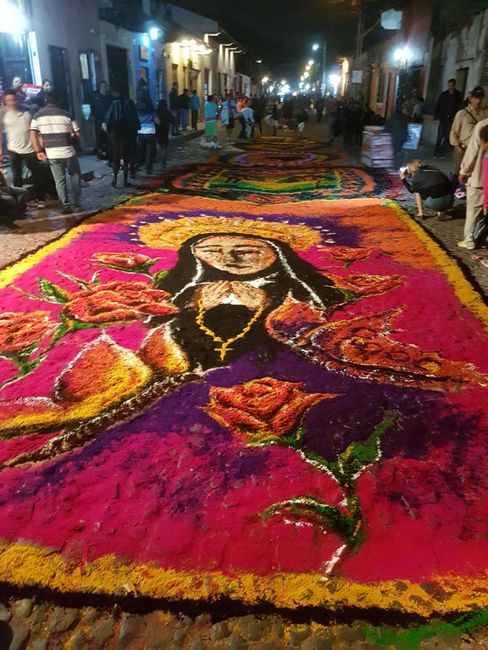
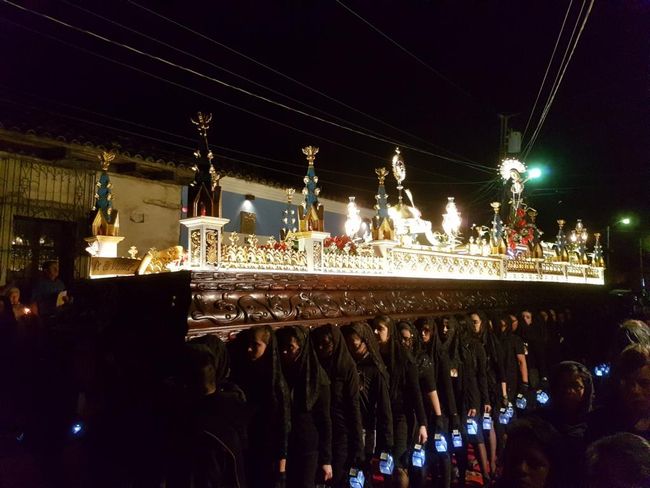
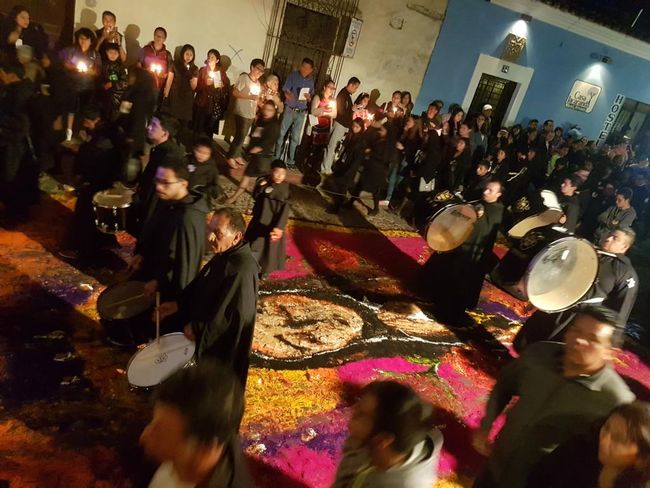
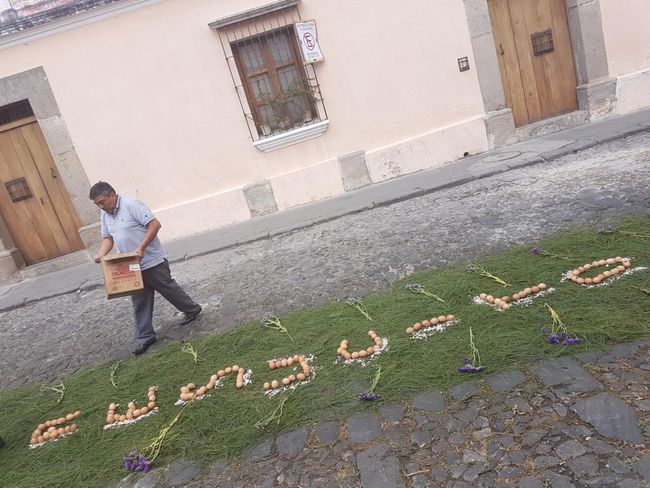
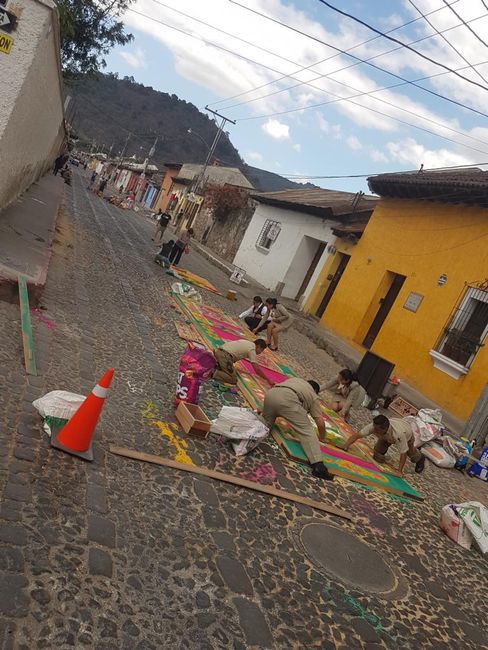
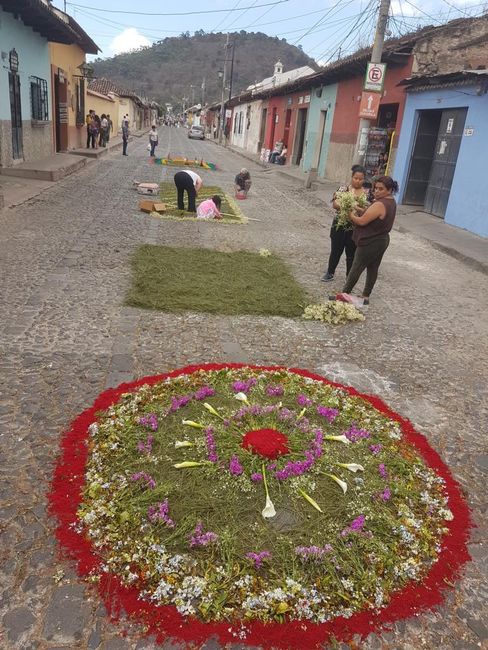
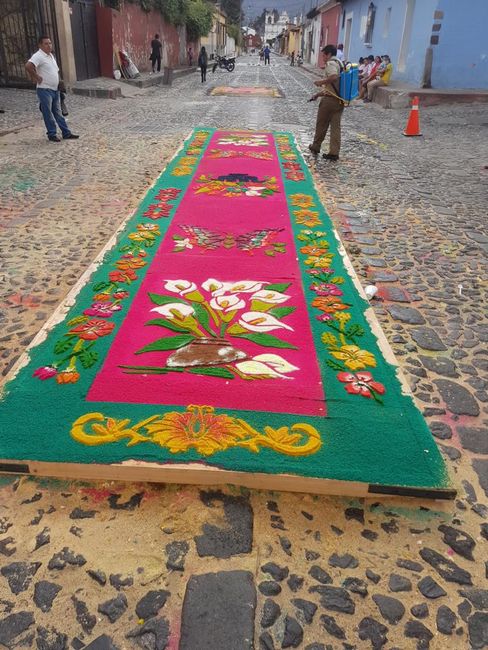
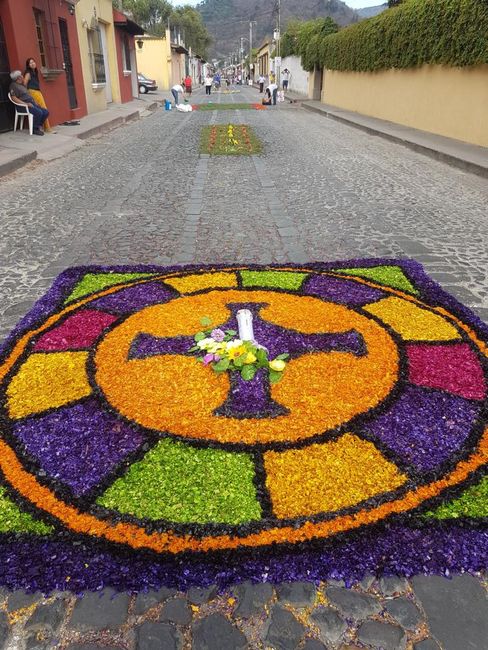
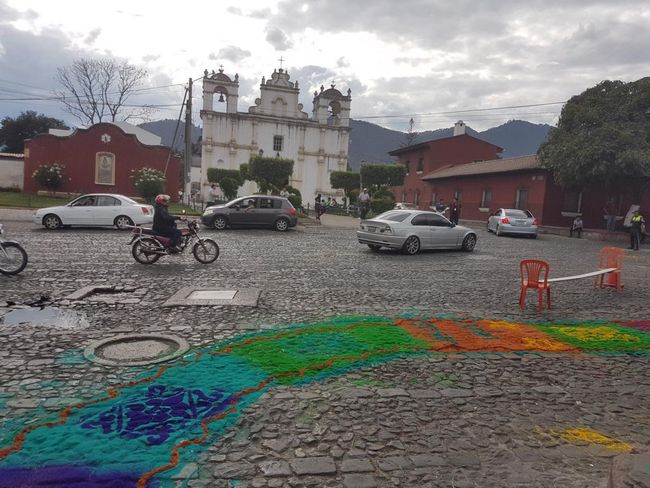
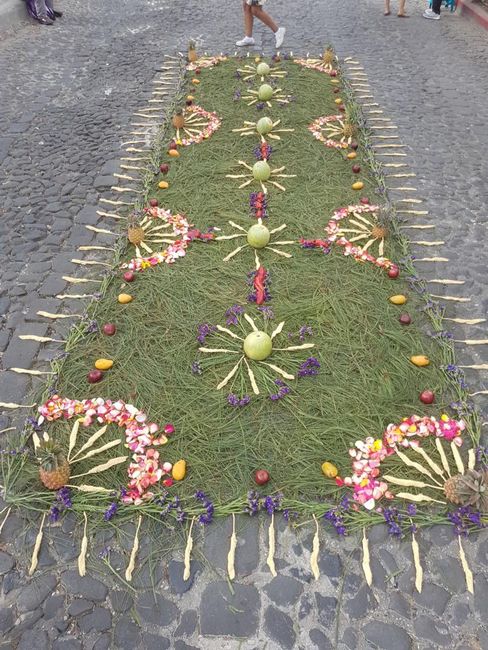
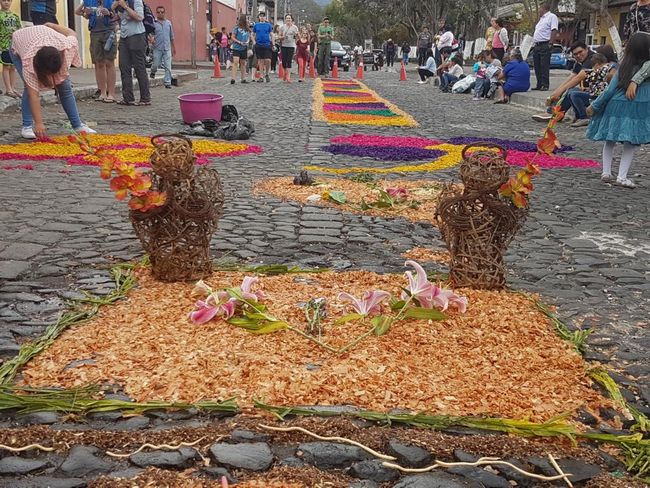
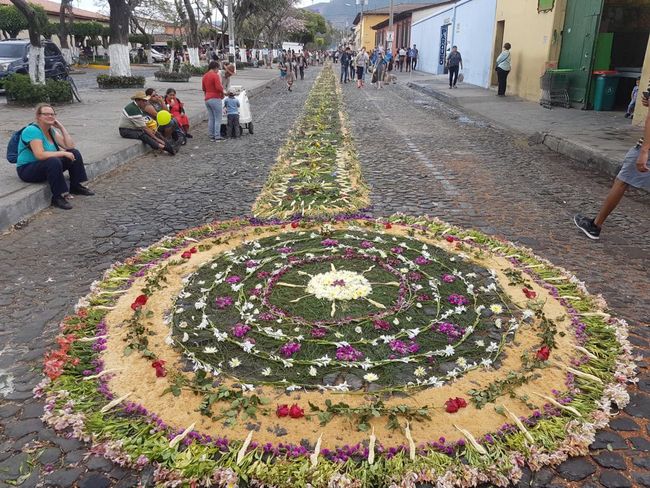
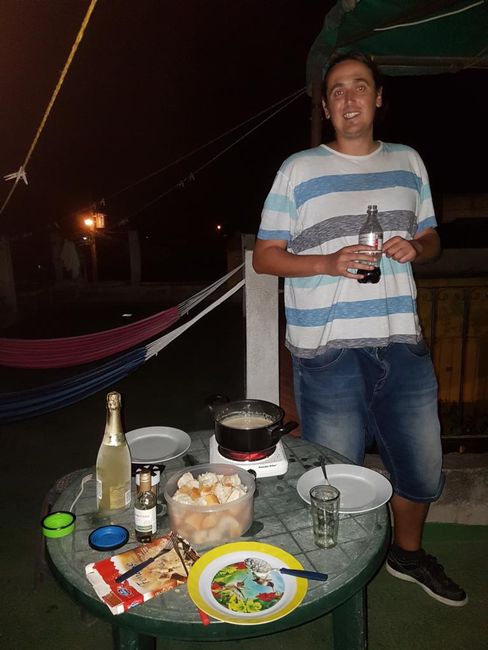
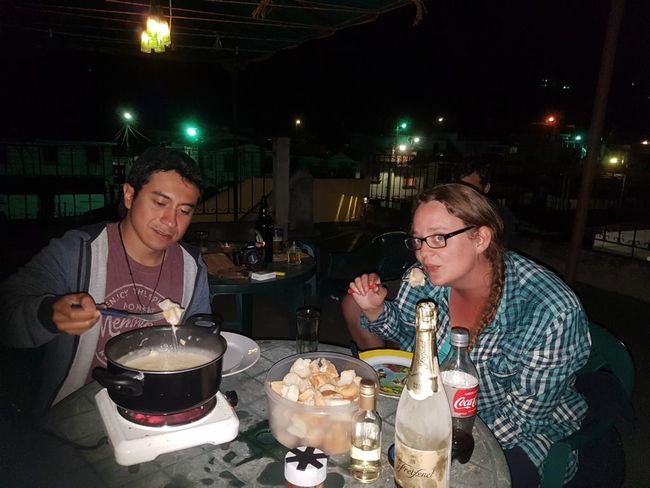
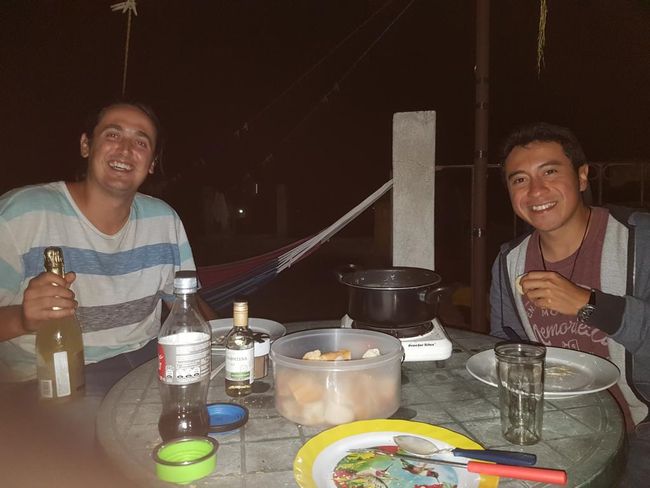
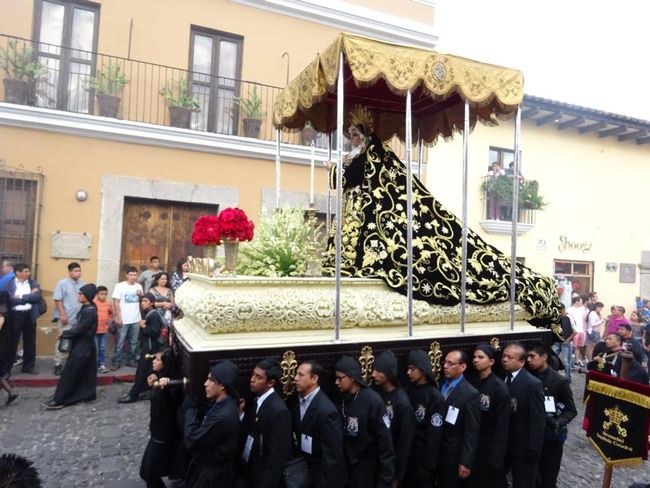
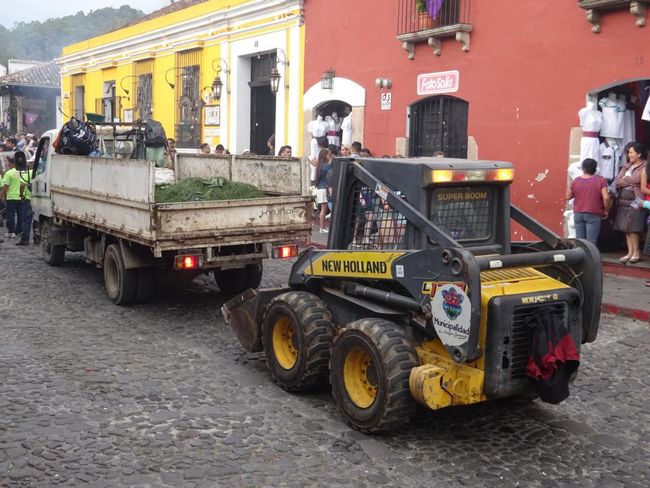
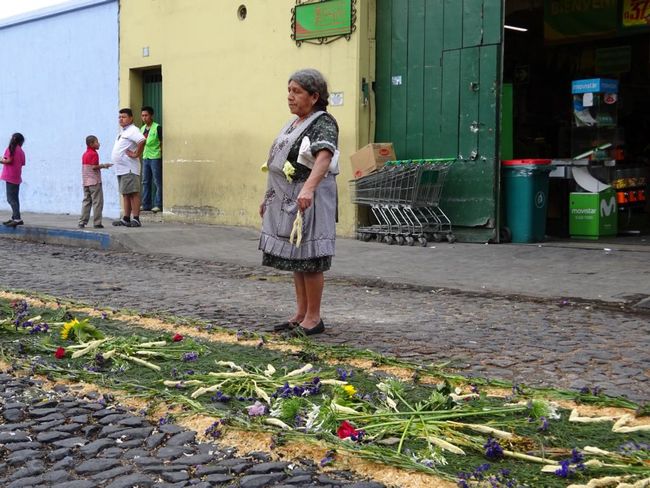
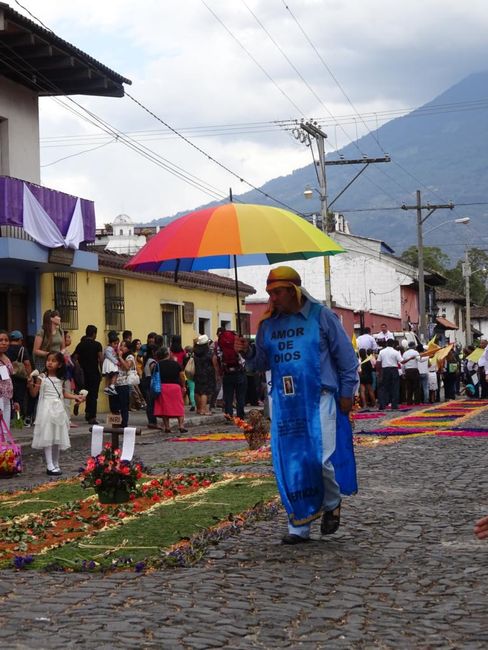
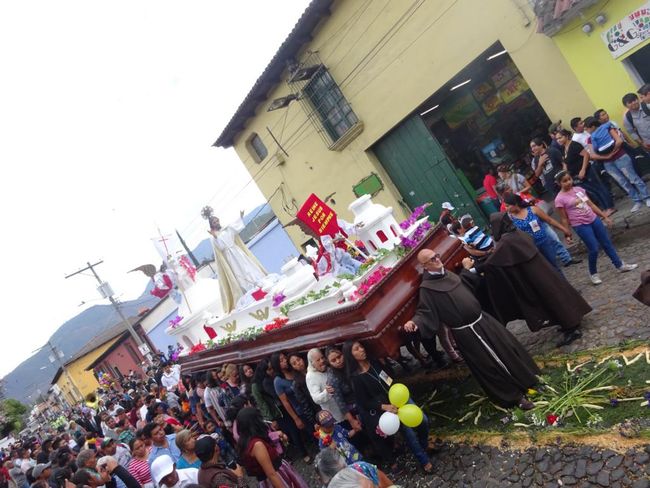
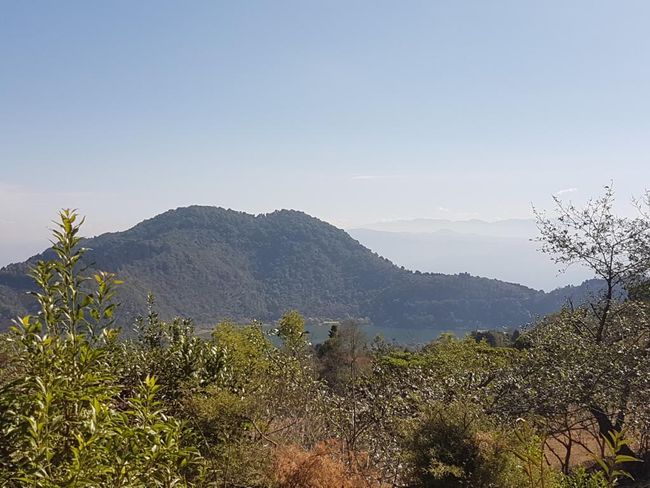
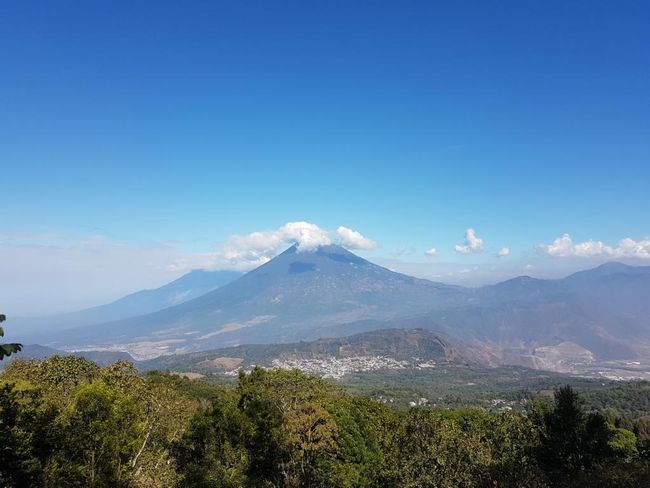
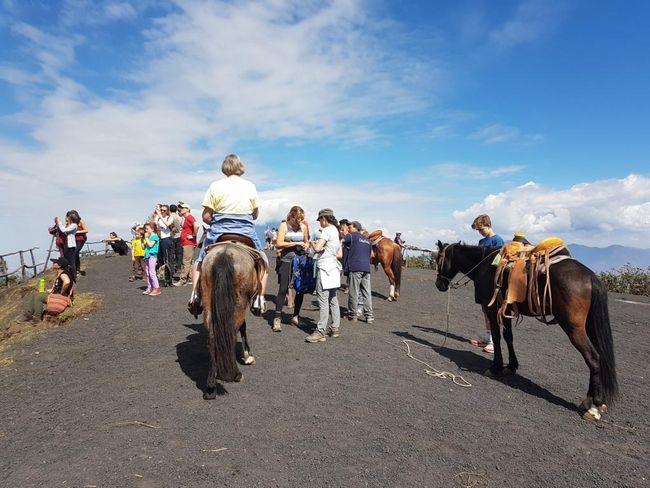
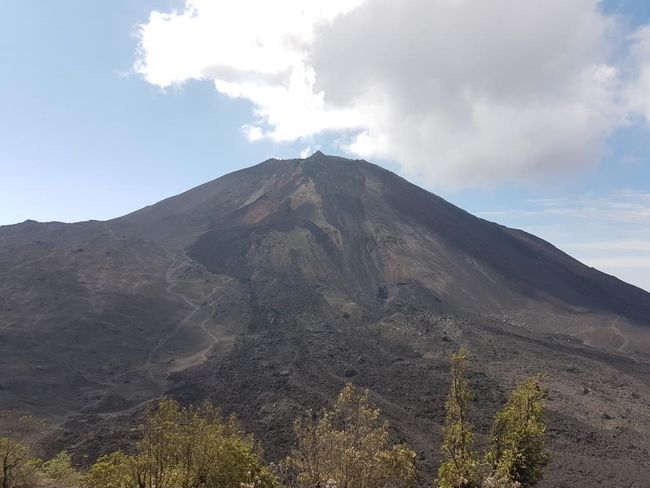
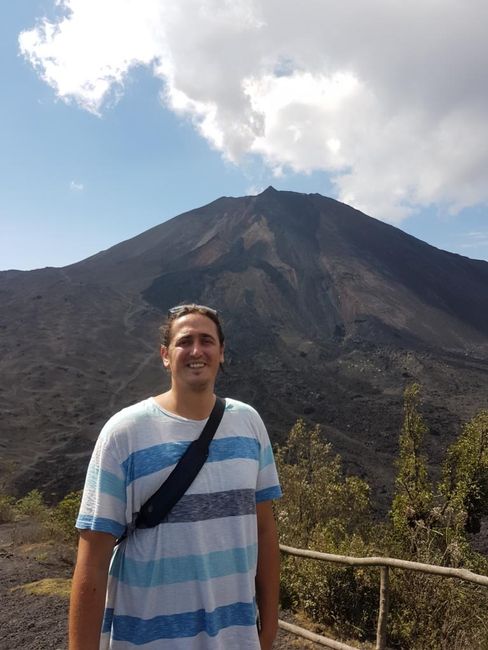
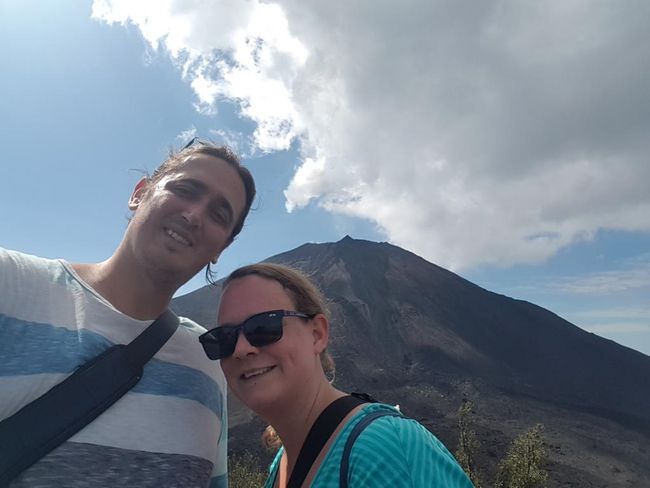
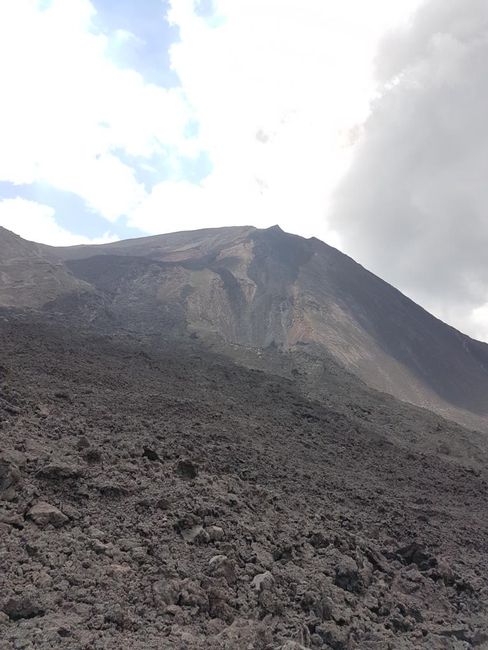
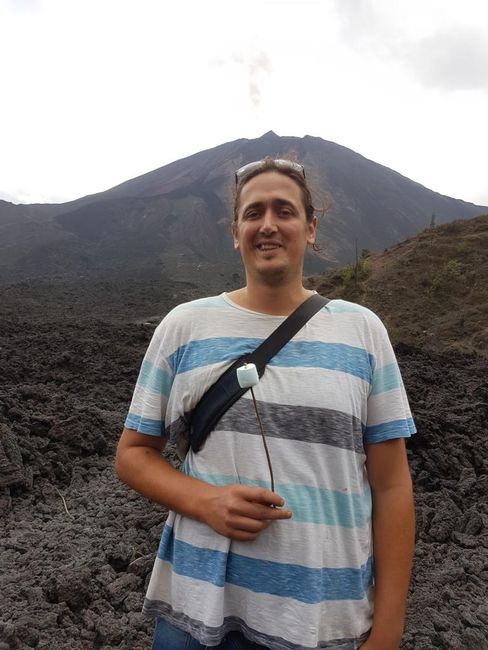
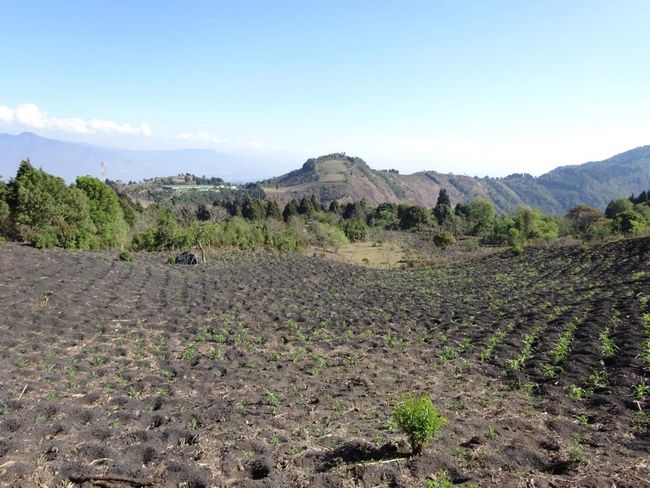
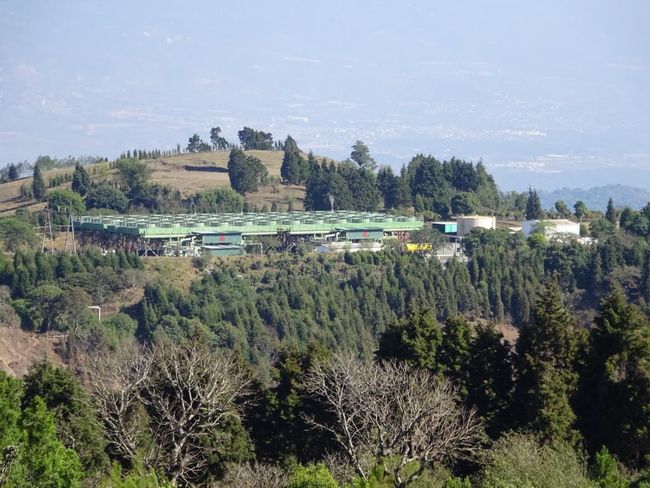
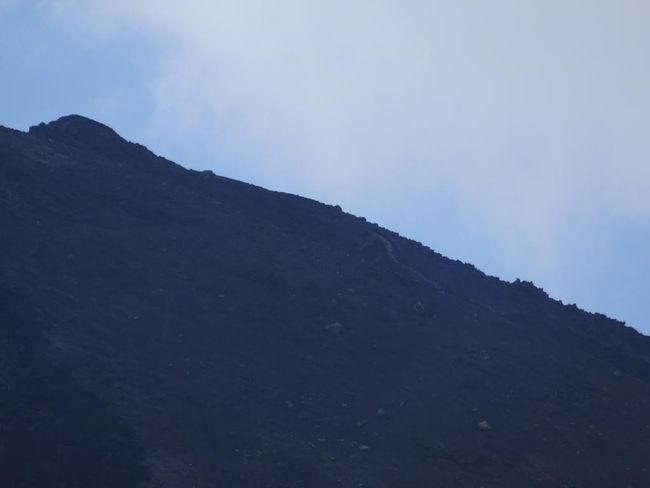
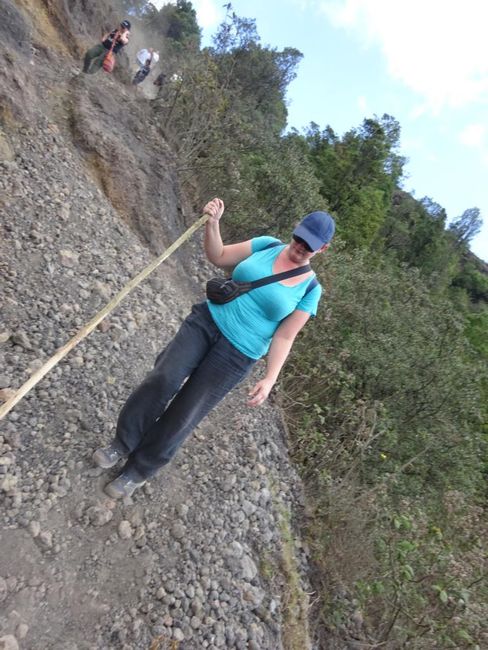
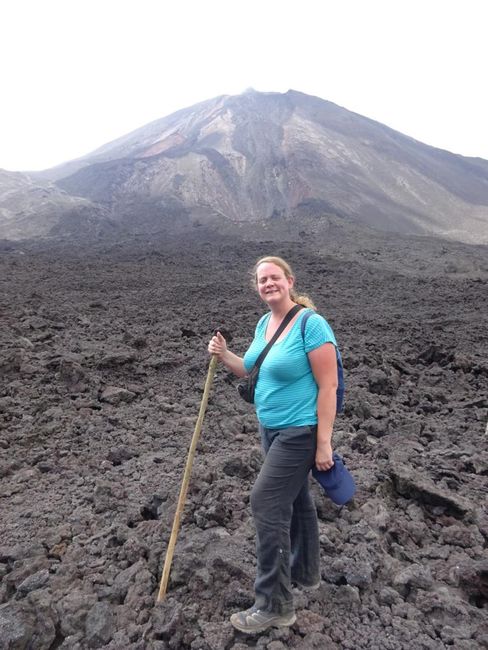
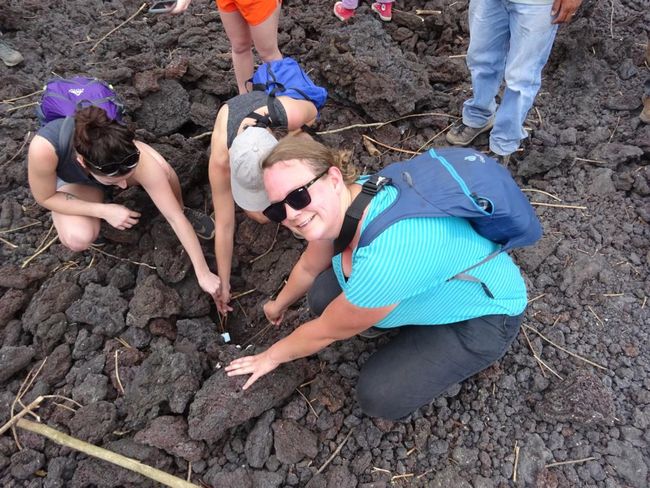
Subscribe to Newsletter
In the shuttle from Playa El Tunco to Antigua, something extremely strange happened. There was an American couple sitting in front of us in the shuttle, and they were very easy to hear. So far, nothing out of the ordinary. But when the man turned around and asked us if we were from Switzerland, we had to listen twice and couldn't believe our ears at first. Did he just speak Swiss German? The man's name is John, he's a genuine US American, and it turns out he has a grandmother from Basel.... and he speaks Swiss German very well.... even with a Basel accent.... where does one find something like that? Americans are not necessarily known for being proficient in foreign languages, and as a result, they have the eternal disadvantage of being understood by everyone around them, but not understanding anyone else. John is definitely an exception to that rule, he is truly a language talent. Besides English and Swiss German, he also speaks Spanish, French, and a little Portuguese. We were really amazed. Anyway, it became a lively bus ride with conversations in all sorts of languages, a mix of English, Swiss German, Spanish, and French, because next to us there was also a young woman from Yverdon le Bains. I also noticed with alarm how difficult and unfamiliar it had become to switch to English spontaneously, which used to be my daily bread, after I had gotten so used to Spanish. Not to mention French..... Oui, c'est vraiment très difficile.
Fortunately, we also had a local woman from Antigua on the bus who was able to inform us about the festival program. I had previously tried unsuccessfully to find out about the Holy Week program on the internet. So we found out that the main program would start tonight, at midnight in front of La Merced church with the Romans. Then, at 3 a.m., the first major Good Friday procession would start, also at La Merced church. There had already been processions all week, and even in the weeks before, as we had witnessed ourselves. But Good Friday was definitely the most important day.
So, of course, we found ourselves in the square in front of La Merced church at 10:30 p.m., not really knowing what to expect. First of all, there was a huge fair. There were countless food stalls, candy shops, street vendors, and thousands of people. Some people were sleeping on the ground or even had set up tents in the small park. Apparently, drinking alcohol in public is forbidden in Guatemala, but we only found out about it afterwards. That's why everyone had looked at us so strangely when we filled our cups with the bottle of rum we brought. But we didn't let that bother us, after all, it was midnight on Good Friday and my 33rd birthday. That had to be celebrated properly. And we were definitely not the only ones who were drinking a little bit, especially when we were once again approached and talked to by a very drunk person asking for money. Besides, the supermarket had offered huge packs of beer for Easter, which apparently found many buyers. So we drank our rum and waited for the spectacle to begin.
Around half past eleven, some guys suddenly started pushing the crowd on the completely overcrowded square back and clearing a zone on the square. Some horses were then led into the cleared zone through a plowed path through the crowd. Really? It just occurred to them to close off this area now? Now, half an hour before, when everyone was already gathered on the square? Wouldn't it have been smarter to do this in the afternoon when the square was empty? Overall, everything seemed a bit chaotic and somehow gave one the feeling that they were doing this for the first time today, and not for hundreds of years. Accordingly, the cleared zone was quite small and tight, and the horses that were tied up within the huge crowd were pretty nervous, some of them even tried to break free. It didn't make us feel very comfortable thinking that one of the horses might break free, run through the crowd, and rush to freedom.
Armor parts were brought in afterwards and some men began to dress up as Romans in the middle of the square. The men mounted the nervous horses while many more foot soldiers-Romans streamed into the square. Of course, they also had to find their way through the people. When they were all ready, one of the Romans opened a scroll and began to read from it. Not much could be understood, but it was about the sentence of death against Jesus and the crucifixion that had just been announced. Then the scroll was packed up, and the Romans rode away through another path that had also just been pushed back in the crowd on the other side of the square. And then we stood there... and looked at each other.... was that really it? The whole thing hadn't even taken 5 minutes! We asked the people standing next to us if that was really all there was, to which they laughed and nodded. Yes, that's it. That's why we had waited for an hour and a half on the square. Thank goodness we had rum with us at least!
Nevertheless, we found ourselves back on the square at 2 a.m. to witness the start of the first procession at 3 a.m. Unfortunately, at that moment, when I had to go to the bathroom for a moment and had to wait an eternity there, the path was cleared again where the procession would pass through afterwards. So it happened that Jörg and I found ourselves on opposite sides of the cleared path, and despite pleas and begging, we were not allowed to pass through. After all, Jesus would soon come. The advantage of such events in Latin America is definitely that it is not necessary to be at the front. Since the people here are all so small anyway, as an average-sized European, you have a good view from everywhere. And so I experienced for the first time how Jörg must have felt at concerts, festivals, and similar events, after the people behind me loudly complained about the tall white woman in front of them blocking their view. I stood in the middle of a local family and had a little chat with them while we waited. They asked me if there were many processions in my home country. Uhmm no, not really. How do you explain to people who were forced into a religion with all their might, that the same religion is losing importance more and more at its place of origin? That Easter for us mainly consists of chocolate bunnies and two days off work? It's probably best not to explain at all....
Speaking of chocolate bunnies: they don't exist here. No chocolate eggs either. No chocolate at all, in general. That's really a shame. We even started to consider opening a business here selling chocolate bunnies. But the problem is probably the climate, as Easter week falls exactly in the hottest months of the year. The bunnies probably wouldn't keep their shape for very long.
Typical for Latin America are the processions. These are parades in which images of Jesus and Mary are carried through the city on huge wooden platforms by the people. The wooden platforms are prepared in the weeks leading up to Holy Week in the churches, the statues are attached to them and decorated with flowers. The processions always start and end in a certain church and last for many hours, the longest procession in Antigua lasts about 15 hours, the shortest about 3. The platforms with Jesus are carried by men, those with Mary by women. The largest platform in the country apparently exists in Guatemala City and is carried by 200 people. A marching band always follows the platform and plays music appropriate to the theme. Most of the time, it's very dark and dramatic melodies. Except on Easter Sunday, on the day of the resurrection, when more cheerful music is played. Directly behind the marching band, the cleaning team marches with a digger and garbage truck to clean up the remains of the alfombras (more on that later) and other debris from the streets.
During the processions that take place before Good Friday, the men participating in the procession wear purple robes, while the women wear black skirts and white blouses. On Good Friday at 3 p.m., the colors are changed because Jesus was found dead at that time. From then on, the men wear black robes, the women wear black dresses and a black veil. We were told that people would wear white on Sunday, the day of the resurrection. But in fact, we didn't see anyone wearing white, the people who participated in the procession on Sunday were simply dressed in normal everyday clothes.
We had noticed that in the weeks leading up to Easter, the altars in the churches were always covered with purple cloths. We had often wondered why. In Antigua, we then realized that the cloths were covering Jesus on the cross, as he had not yet died in the weeks before Good Friday. It was not until Good Friday that the cloths were removed from the altars so that Jesus on the cross could be seen.
Back to the first Good Friday procession: At exactly 3 a.m., the church door opened and music with a dramatic and gloomy melody could be heard. I had chosen the perfect spot to be able to look directly into the church. So I saw Jesus, who was carrying the cross, and the Romans escorting and whipping him, floating through the church.
Although I am not Catholic and not religious in general, it was an incredibly moving, impressive, and unforgettable moment when Jesus was carried out of the church with the cross. Instantly, all the assembled people on the square bowed respectfully in front of him, crossed themselves, and said prayers. The sad music of the band, I really had goosebumps and was very moved.
Another platform followed with the image of Mary.
When we reached the panoramic point, the guides distributed wooden skewers and marshmallows, which can then be grilled in holes between the lava rocks using geothermal heat. Clearly an absolute tourist gimmick. But of course, we couldn't resist sticking a marshmallow on the skewer, since we were already here. And it was impressive how hot it got in these small rock holes.
As I said, the Pacaya trip is really touristy, but it's still a nice and entertaining half-day trip from Antigua, and it offers the unusual opportunity to get quite close to a very active volcano crater. Locals from Guatemala City who were in Antigua over the holidays in the same hotel told us that in the past, you could even hike up to the edge of the crater. However, nowadays this is no longer possible for safety reasons. Well, maybe that would have been a bit too much excitement for me.
The next day, we said goodbye "definitely" to Guatemala and set off towards Honduras, curious about what adventures awaited us there.
Subscribe to Newsletter
Answer
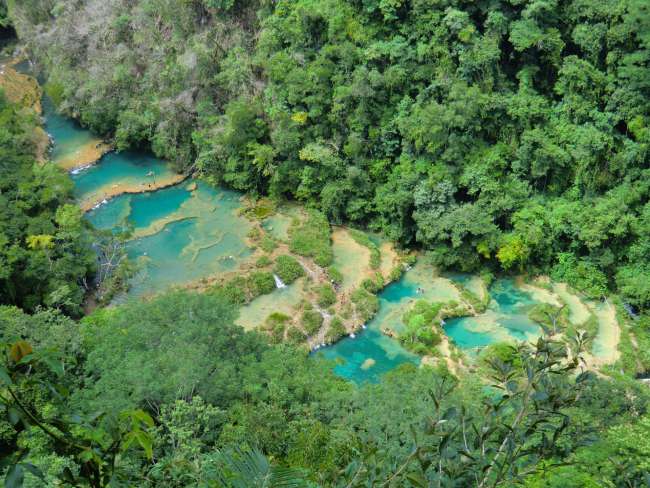
Travel reports Guatemala

